
As I stated in my last post, I have recently started a new job as an EdTech Integration Coach.
I have been keen to dive into the ins and outs of this new role. It is a learning curve, but one I am so excited to get into with my new colleagues. I have started the Google Certified Coach program, bought a few books (mentioned in my last post), and have signed up for multiple PD's my school is hosting based on coaching - what a year to be here! Jim Knight's Instructional Coaching and Cognitive Coaching being the two big names we are working with this year. In short - I am excited to learn all that I can about being a coach. Because I know my knowledge base is small right now - I have some questions for all of you experienced coaches... I have started formal coaching cycles with 9 teachers at my school. I felt like I had great energy and lots to collaborate on... We have identified their goals, we have worked through possible solutions, they have chosen tools to work on this solution, I have been into their classroom to observe, we have reflected on those observations and made next steps.... and now I am feeling like...
My check ins with teachers are becoming shorter - because they are on a roll and know what they're doing next. I don't want to waste their time. I am still consistently meeting with them to be a collaborator and have them voice next steps, etc...
I want to back off and let them fly, as I would with my students. I want to give them breathing room and time to think and experiment. But I also want to keep committed to them in this coaching cycle. I just feel a little stuck at this point.
1 Comment
Last year when I was applying for jobs I made the conscious effort to decline classroom job interviews, and stick to my instinct about moving into the world of EdTech coaching. The universe provided, and in a few short weeks I accepted a Technology Integration Coach job at Chadwick International (Korea) to work in a department of 2 for the Village School (elementary).
The beginning of the year was a whirlwind. Having 2 weeks of quarantine after entering the country and starting with online orientation made the foundations of my job (relationships) a little difficult. Even once we were completing the end of orientation in person, we still had to adhere to social distancing and smaller groups. The natural act of sitting beside people and "accidentally making a new friend" was pretty impossible. For the first two months I have been attending meetings to give a little peep of a suggestion here at there, teaching a couple of digital citizenship lessons to kick off the year, and helping to administer MAP Tests in grades 1-5. We also had an IB Evidencing Learning workshop which gave me another good chance to connect with colleagues. I also began putting together a monthly Coaches Corner. I feel this makes the coaches and pedagogy leaders in our school more visible. Each month I am asking them for submissions, then on the first of the month I email it out to the Village School and also post them in common staff areas such as collaboration rooms, staff rooms, and even bathrooms. Within this, I created a #ChadwickSlowChat on Twitter. Each month I am asking a different teacher to pose a question to our community. The start has been slow, but I am hoping to watch it grow!
This week we began our new Simply Certified sessions. This week we started with "All About Apple" where I reviewed all of the types of certifications teachers can get from Apple. At least 3 more teachers are already Apple Teachers from this session, and many more have started their journey by earning badges! Coming soon is Google, and I also sent a document out with information about Seesaw, Nearpod, Flipgrid, and more.
Now is the natural time that I have people/teams approaching me with bigger ideas. I am excited about their eagerness and am happy to dive in with them. However, as I am new to coaching, I just want to know all of the things. I bought 3 books to help guide me. The EdTech Coaching Primer by Ashley McBride, Courageous Adventures by Jennie Magiera, and The Complete EdTech Coach by Adam Juarez and Katherine Goyette. These have been a great place to start, but I found myself wanting/needing some sort of organization to document and help guide my conversations with teachers.
I started by modifying one from Magiera, and then scratched it completely and began from what was in my heart. However, a few elements still remain the same. I need to try to evidence where they are so I can meet them there. Then I need to try to outline possible solutions and key people, resources, blogs, and links that might help them get there. Teachers have a lot on their plate and if I can do some of the heavy lifting for them, I am willing (and excited!) to do that. Below is what I have started. I spent the end of this week filling them in for people I have spoken to already, and tweaked things as I went along. This doesn't work - don't need this - need to add this. I will continue this tweaking process as I go along
While this is a large learning curve for me, and creating a coaching culture within a school may not be easy, I am excited to see where our team takes it!
Do you have an animals or habitats unit coming up? How about something to do with adaptations? How about a writing unit with a focus on research or information texts?
March Mammal Madness 2021 is your answer!
This will be my third time participating in March Mammal Madness with my class. It is much like March Madness, but with animals! 4 divisions of 16 animals (plus a wild card) "battle" to see who wins! Don't worry, the battles aren't real (often the pairs would never encounter each other in real life) and don't always end in death either... sometimes an animal is just disinterested in a conflict, like in real life. Your job is to research each animal to the best of your ability so you can predict the winners and score the most points on the bracket.
Here is Everything You Need to Know:
Ways I have used MMM in the past (with grades 3 and 4):
2018 - One class researches the whole bracket (in person, at school):
2020 - One class researches the whole bracket, but 5 other classes also participated (home-based, online learning):
2021 - Five classes will research the whole bracket (preparing for home-based, online learning):
Other Ideas:
Of course, if you are viewing this and it is after March, you could always use the old resources and create your own timeline for your class. Cindy's ResourcesIf you are following my professional blog page, please remember I am on several professional learning journeys at the moment. Both of which I am blogging about - just elsewhere on my website.
1. COETAIL - Certificate of Education Technology and Information Literacy. Course 5 will begin Feb 1, 2021 and be completed by May 15, 2021. 2. MALDT - Master of Arts in Learning, Design, and Technology with Central Michigan University. I began this in January 2021 and will complete it in April 2022. I am also excited to say that in July 2021 I will be making a large shift in my career. I will be moving into an EdTech Integration Coaching role at a different international school in Korea! I am extremely happy to take this next step and join another amazing PYP school in their EdTech journey. As I move out of the classroom my professional goals and needs will shift as well. I am looking forward to sharing these with you as they change. 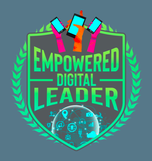 Image from Empowered Digital Leaders website Image from Empowered Digital Leaders website
This week I have had the amazing opportunity to begin learning with Jennifer Casa-Todd and Adam Hill in their new 4-week course "Empowered Digital Leaders." We have yet to have our face to face meetings online to discuss the week, but I am more of a writer than a talker (I see you, Adam!) so I am going to take this opportunity to reflect on the week.
As I work with primary school students, this really stuck out to me because I feel like social media is often overlooked because our students are "too young." I am not of that opinion. I feel like releasing the responsibility is important, and we know they are likely to have social media before they are 13, so starting young (grade 3 or 4, even) is important.
The shared experience, teaching them concepts like responsibility, perspective, and respect is important. Modeling to them how to leverage social media in positive ways before they are sucked in to social pressures could be key. Are they too young to have their own account? absolutely. Are they too young to experience using social media responsibly with a group of peers and an adult they trust? No.
Perspective is so important when talking about social media. For all ages.
Remembering that everyone online (and in person) has different opinions, beliefs, values, and experiences they bring to the table and conversations. A difference of opinions is normal, but we need to react and behave in a respectful manner no matter what. Exposing students to situations where they need to maybe suppress some reactions and reply kindly could be beneficial. Also talking about the idea of screening comments and just simply not approving posts where people are not discussing/debating in a respectful way. Perspective is key, just as it would be in a classic debate.
I would really like to explore this this year. I work in a collaborative studio model so have the opportunity to interact with around 100 grade 4 students, not just my own 20. I know I have had students in the past with a strong online presence, and while I showed some interest, I didn't really probe or see if we could use it as an example, or even see if he was being respectful or positive. I might be surprised at the ripple effect if I dig a little deeper this year.
Besides exploring the notes and ideas above...
...Blog more! All of my recent blog posts are on my COETAIL Blog for that course. That is fine, and it is getting me to blog more regularly, but I would also like to make more time for blogging about things inspired by my own setting. A big thanks to Adam and Jennifer for allowing me to learn with them in this course. I am looking forward to the discussions coming soon and the next few weeks digging deeper. 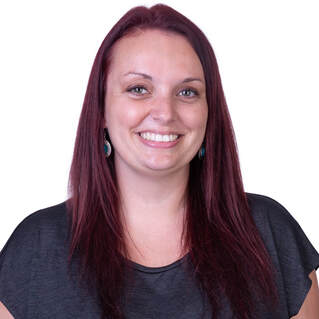 Hello everyone! I know it looks like I am blogging less lately... however, I have actually been blogging MORE! I have started EduroLearning's COETAIL course (Certificate of Educational Technology and Information Literacy). For this course I have set up another blog page on this website (My COETAIL Journey Blog). Please follow me on this journey and comment with questions or examples related to my posts. Thank you!
In November I attended some professional development with the Knowledge Source Institute in Thailand. The workshop I chose (along with a colleague at ISHCMC) was Transforming Learners into Self-Regulated Learners with Linda B. Nilson.
One of my main takeaways from this workshop was only a small part of the day, but had a lasting impact on me. It was the notion that students need to experience learning in at least three ways to deepen their understanding. She gave us 8 modes of learning as examples to try to get the students to experience. I immediately began thinking about how I could adapt this to Studio 4. My first step was in math lessons. We briefly discussed what each mode of learning could look like in math. I gave them a math challenge in groups or as individuals, and when their group used any of the modes of learning they were to come up to the board and write their team name in that column (or they would write their name on the board). We did this a few times before the Winter holidays.
It was great watching them explore the different ways. What did it mean? What could it mean? How could we do this differently?
When January rolled around I felt that they were ready for the next step. I redesigned their weekly goals/planning document to include the modes of learning.
We took a morning to brainstorm and add to examples of what each mode of learning might look like for our goals (math, literacy, ATL skill).
These are posted in our classrom and have been added to as students write different ideas into their planners. For students that need more/new ideas or help they can look at these posters while planning ways to reach their goals.
Out of the eight modes of learning, we decided it was fair for them to plan five ways each goal could be completed in a week. The expectation was that they complete at least three of these five ways.
My thought process here was at least they were thinking of more ways they could go deeper. If they finished three modes of learning for one goal, it would be clear that the goal is not "finished" or checked off, done, or completed. They could still see more ways they could continue this goals.
We have just gone through two weeks of 100% of the class getting through 100% of their expectations for the week. This was highly celebrated and gave slower students a taste of success with their peers. Now that they have the hang of it, the plan is to go deeper still. In their individual conversations and reflections with me, we have discussed writing deeper examples in each mode. We have also discussed planning more than 5 for some of the students, as they seem to be getting through them with focused attention. Looking to get started or go deeper with your students' goals and reflections? Here is a folder full of a variety of planners (this current one is number 7 in ISHCMC, Studio 4). Please feel free to look through them, make a copy, and see what suits your students in your environment!
At PYP schools we have to cover six transdisciplinary units (unless you are teaching early years, which is a minimum of 4 units). These units are:
Traditionally, PYP schools would look at their year, line up their 6 units in an order that seem to work for them, and see what areas of math, literacy, science, social studies, etc fit into each unit. With the Enhanced PYP came a flexibility with these units. We no longer have to see them as one straight line and have some freedom to play around with structures.
One way to do this is to have a whole school, year long unit. Our school has a Who We Are unit which every grade focuses on the same central idea, but writes their own lines of inquiry to fit the learners they are working with (age as well as personalities, etc). We have done this for a few years now and have just switched to a new central idea after a long process with our PYP Co-ordinators at the end of last year to make sure everyone's opinions were heard. What other ways are possible to play with the rest of these units? Last year #Studio4 had one unit feed into another unit. So they are connected but also kind of separate. We are doing that again this year with Sharing the Planet (focused on sustainable businesses) leading into How We Organize Ourselves (an entrepreneurship unit that will hopefully then be focused on sustainability). That's 3/6 units structured for us. We had an idea for How We Express Ourselves. We wanted a bit more of a literacy focus throughout the year and to explicitly focus on more writing and communication skills. So we made a unit based on reasons why people communicate and how effective these communications are for different purposes. It is mostly another year-long unit.... BUT we are also breaking it up into 3 chunks with our other units based on the communication skills Approaches to Learning.
So for two weeks we focus on the Exchanging Information Communication Skills (speaking, listening, and interpreting). Then this leads into a How The World Works unit about how scientists communicate their findings after going through an investigation.
When this unit ends, we will take another two weeks to focus on the ICT Communication Skills (Media Representation and Informed Choices). This will lead into the entrepreneur unit mentioned above for STP/HWOO focusing on how businesses advertise themselves and the choices they make to showcase their products and/or beliefs. For the two weeks before our last unit begins we will again take two weeks to focus on the Literacy Communication Skills (reading and writing). Then we will start Where We Are in Place and Time which is a historical fiction focused unit. While we are taking two weeks to explicitly go over these skills, the HWEO unit is not "broken" into three chunks. It is still carried on throughout the rest of those 3 units as they transfer and apply their knowledge of the skills. What other ways have you been creative with the transdisciplinary themes?
As I wrote in my Goalsetting blog post, one of our school goals this year is to increase opportunities for students to become assessment capable learners.
We have structured our PYP units a little differently this year, as the enhanced PYP is allowing for more freedom and agency to provide authentic experiences for our students. I am planning to write a blog post about that later, but for the purpose of this post I will explain a couple of things. Our How We Express Ourselves unit is mostly year long. Before any unit begins, we are taking 2 weeks to really focus on HWEO and the communication skills that will support us with the upcoming unit. In this case, our upcoming unit (starting after our October break) is How the World Works. We are focusing on the "Exchanging Information" sub skills of communication skills, which are listening, interpreting, and speaking.
At the beginning of the first HWEO unit we had 3-way conferences. This was a great opportunity to start looking at these skills... however, we only had 2 days because of other time constraints!
We wanted ALL 100+ students to have input to the process. Our pedagogy coach Fiona Hurtado had already gone through this process with our year group leader Paul Cheevers and his class for time management skills. So one class had experience, but the other 4 did not. In individual classes, we played some speaking and listening games and role playing.
Then we brainstormed what each of these skills COULD look like. Good, bad, and anything in between.
Then we took all of those things and sorted them into whether this would be Guided, Independent, or Leading (we usually have Shared in between Guided and Independent, but wanted to make it more simple). Each class was a little different than the next.
At this point we had 5 different rubrics that were all FULL of too much information. On the second day, the teachers met and looked at the similarities to make one rubric for the whole studio. We aligned it across the rubric so numbers matched and students would be able to measure themselves on certain pieces of a skill.
We then made one more simplified version to outline what the important things are to measure and remember about each skill. The numbers match the rubric above.
Students used the rubric with their parents at 3-way conferences. Next week, teachers are running 9 workshops to align with each of these important things about each skill. Students will choose 2-3 workshops to attend before reassessing themselves on another speaking/listening activity.
How have you ensured students have voice and ownership over their assessments? Have you gone through a similar process?
Are you thinking of taking this rubric? Of course you can, but I really encourage you to go through the process with your students instead. Rubrics often hold so much information in them, so for students to be involved in making them, you are giving them a better chance to actually understand what is in it. 
Hello everyone! I did not realize how long it had been since I posted. I know that since I made the move to ISHCMC I definitely started posting less often than when I was at ISBerne and Ajman Academy. Ironically, I feel like I have so much more to share with everyone! My focus and energy has just been elsewhere. So, one of my goals this year is to blog more. This got me thinking to share my goals for the year with you... maybe you can help with some!
I work at a school owned by Cognita, so I have several "Let's Talk" goals I needed to input onto their website recently. We tied them to our ISHCMC Principals of Learning and ended up with 5 goals each. Personally, I do feel that 5 is too many. Maybe I would subconsciously end up working on these anyways, but I find it hard to focus on so many goals at one time (well). 1. To improve student learning through being intentional, using data driven planning and authentic assessment.
This is a school-wide goal for primary. It was written for me and we will all be working collaboratively towards this.
2. To provide balanced opportunities for every learner to flourish.
We have spent a lot of time clarifying our "why" of studio 4. Currently we have settled on "to provide opportunities for every learner to flourish." As a team we wanted to try to focus on the balance of that this year, which is why this is our team goal. Just a reminder that these experiences are an opportunity for our students. If they choose not to take them, or not to act on them in a balanced way, it is our job to help them reflect on that. Our goal is to at least provide a balance of opportunities for them.
3. To provide a variety of learning engagements for individual, collaborative, and small groups, suited to help students meet their learning goals.
I wrote this goal before Studio 4 decided on our team goal. Luckily, it ties in really well. I want to really focus on the variety of engagements I can provide for studio 4 students. What can we put out to "rope them in" to some awesome hands on learning when a teacher is not even there? How do we document this? Do we need to? Are they working solo? in groups? teaching others? My mind goes to math when I think about this, but how can we also do this for literacy? Science? Purposeful passions?
4. To document reflections on Studio 4 structures and practices so opportunities for students improve as needed.
AKA - BLOG MORE!!! As I already said, I am aware that I wrote more blog posts in my previous schools. When I really reflected back on my time in Berne I did find that blog writing helped me reflect on that journey. Even reading them now is helping me improve even further, and improve the environment for my students. I want to get back into this... but I also want to keep balance in my life. Finding that balance may be tricky, but I hope to make some more time to write this year.
5. To use my strengths as an ADE to increase staff and student confidence and creativity in using Apple products.
I was lucky enough to be selected for the ADE Class of 2019 this year. I love the connections I have already made around Asia. ISHCMC has just invested in MacBooks for all teachers, so there is a need for training here. I want to assist our Tech Coach as much as I can with this journey, as well as present at other small, school related upskilling sessions in the area.
BONUS: personal goal - To try to keep balance while doing all of these goals!
Another thing I am very aware of is my imbalance when I was in Berne. Yes, I was more reflective and ever changing the environment to better support my students.. but I really had no other life! I was new there so friends were limited (though the few I had were amazing), and social life as a whole in Switzerland is not fantastic... especially after coming from the UAE. Vietnam seems like a good balance so far. Keeping that balance is important. Sometimes that is hard with blogging because when the inspiration comes, I need to just get it out. So keeping the boundaries I set for myself last year here will be important.
Any tips for any of my goals? Please let me know!
|
Cindy KaardalPassionate Educator and Innovation Coach. Archives
December 2023
Categories
All
|

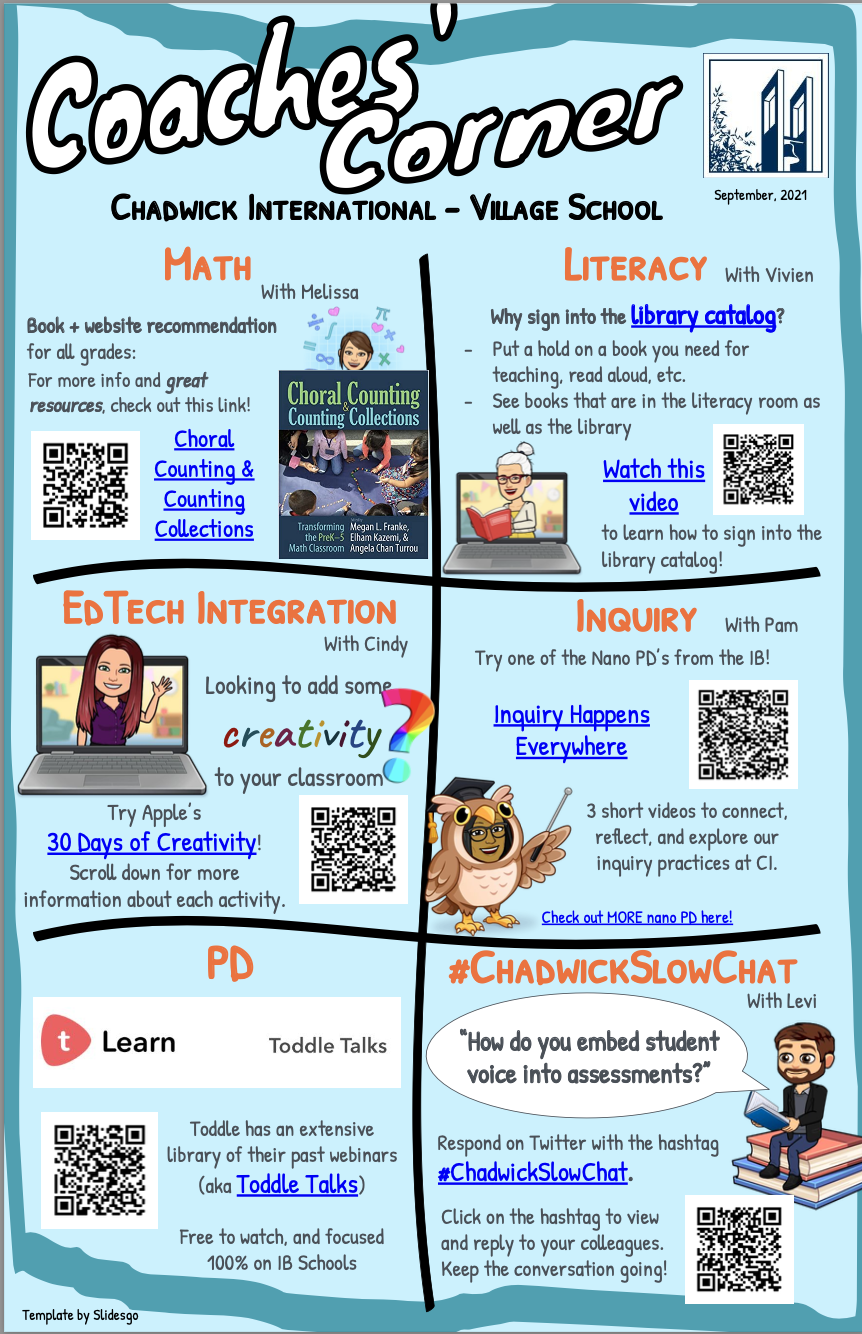
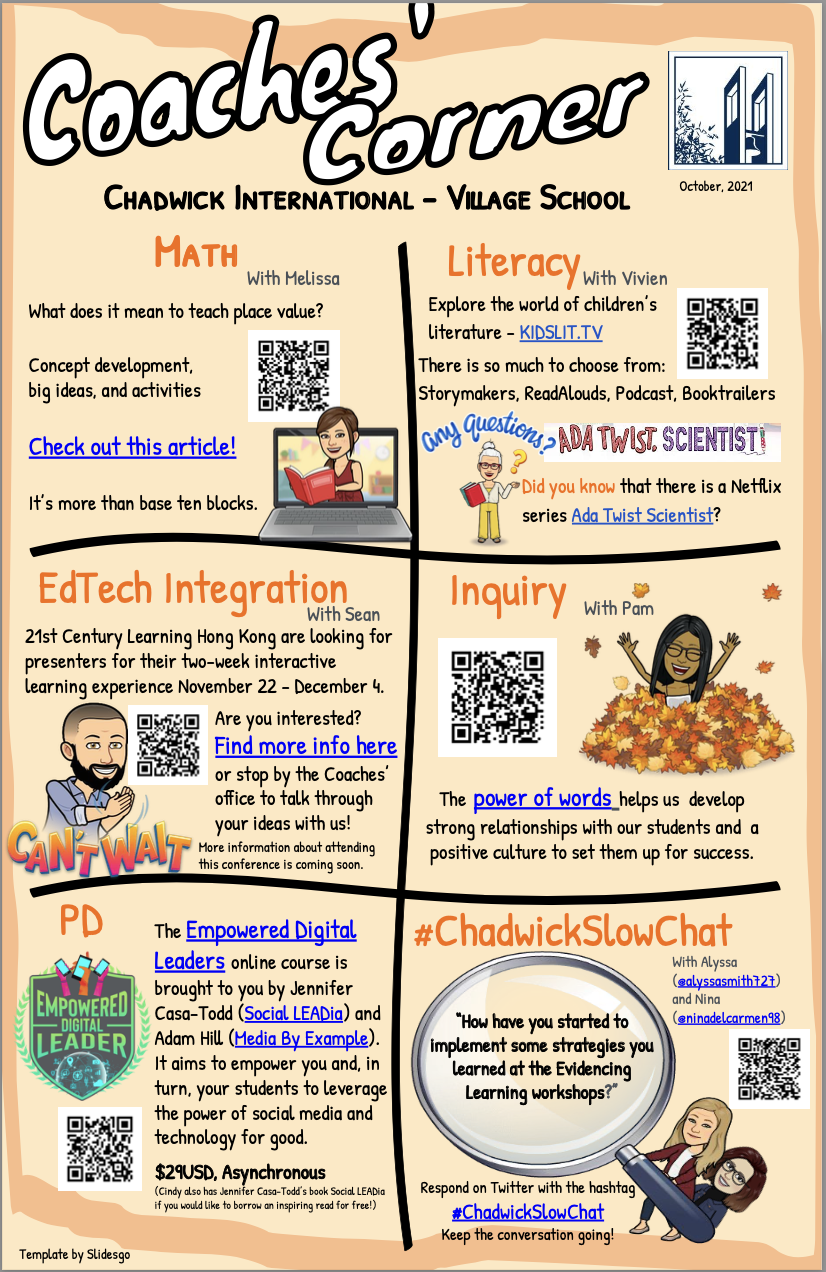
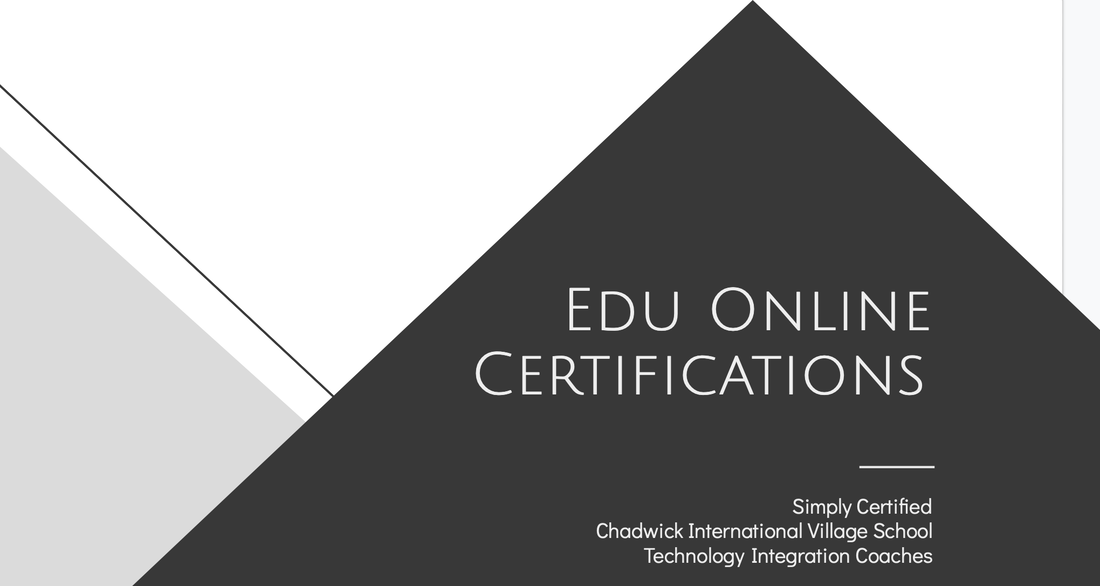
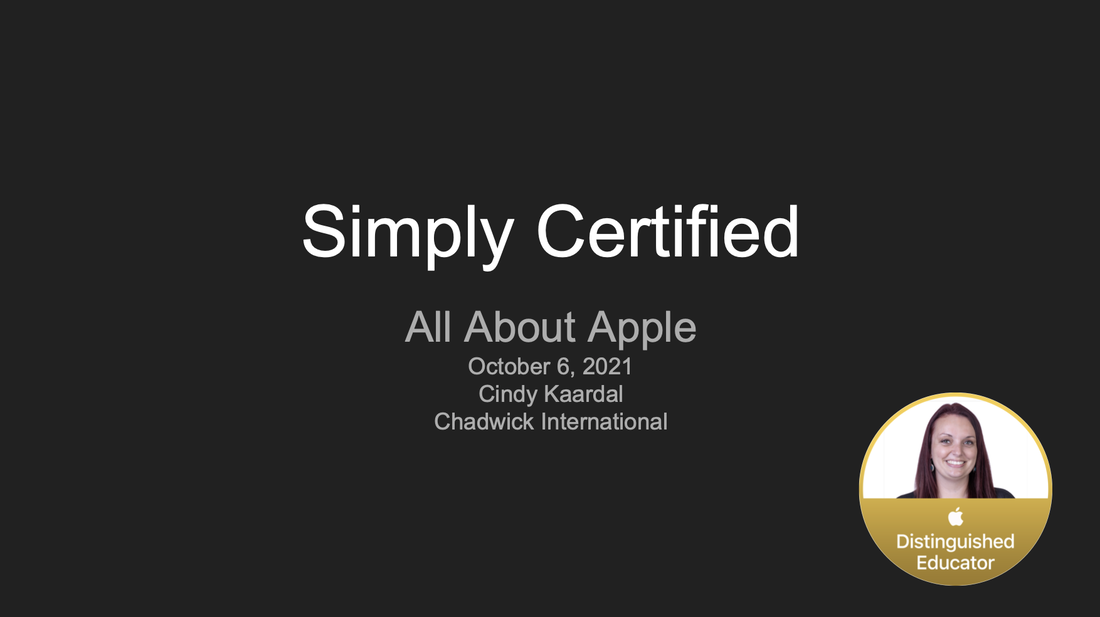
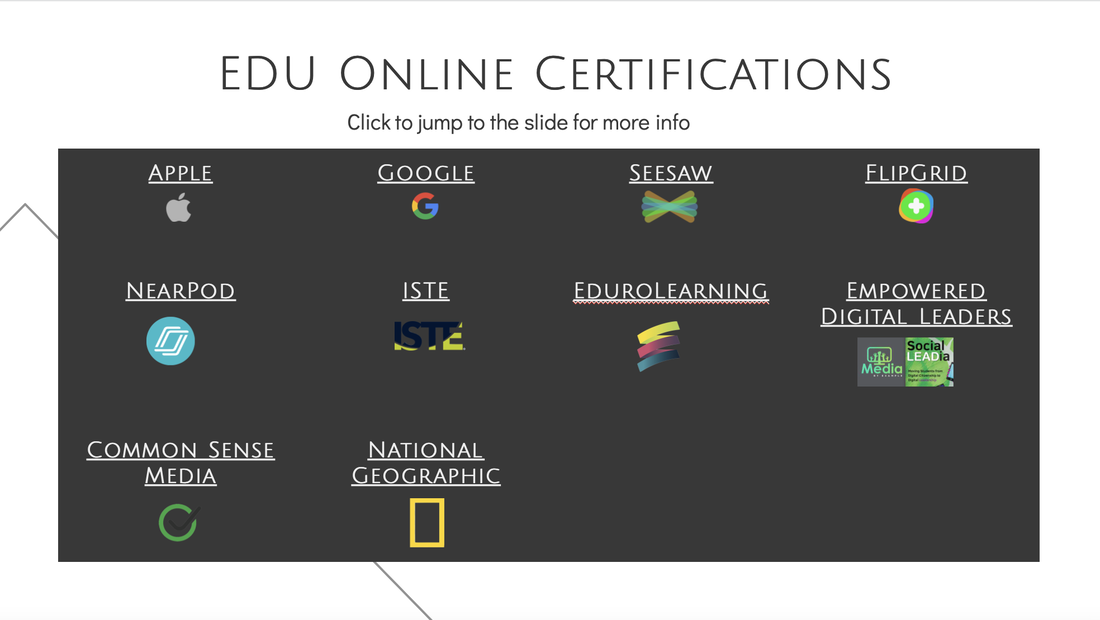
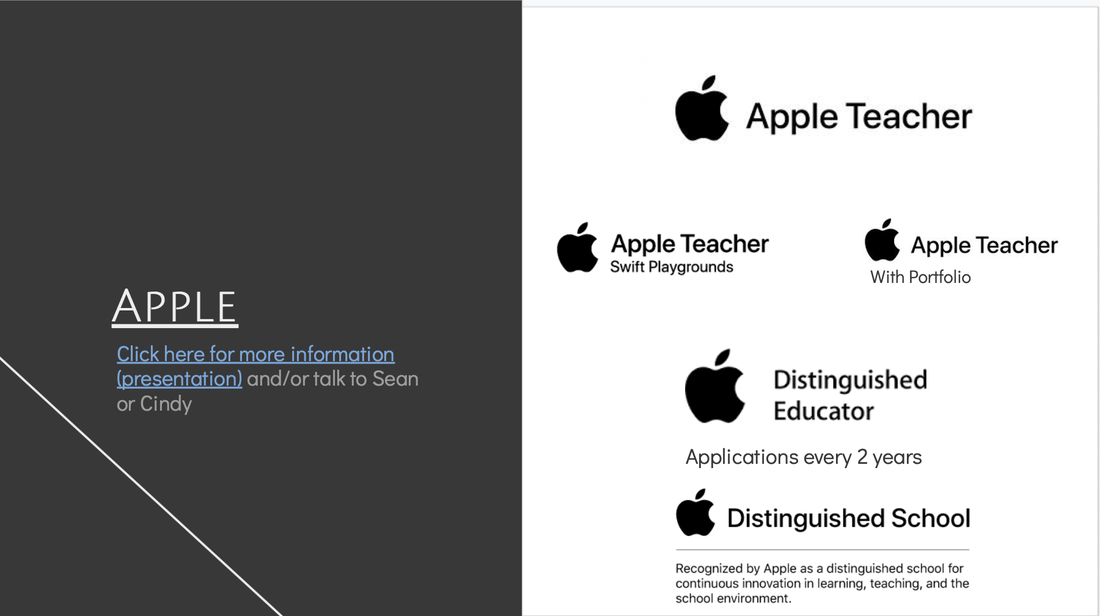
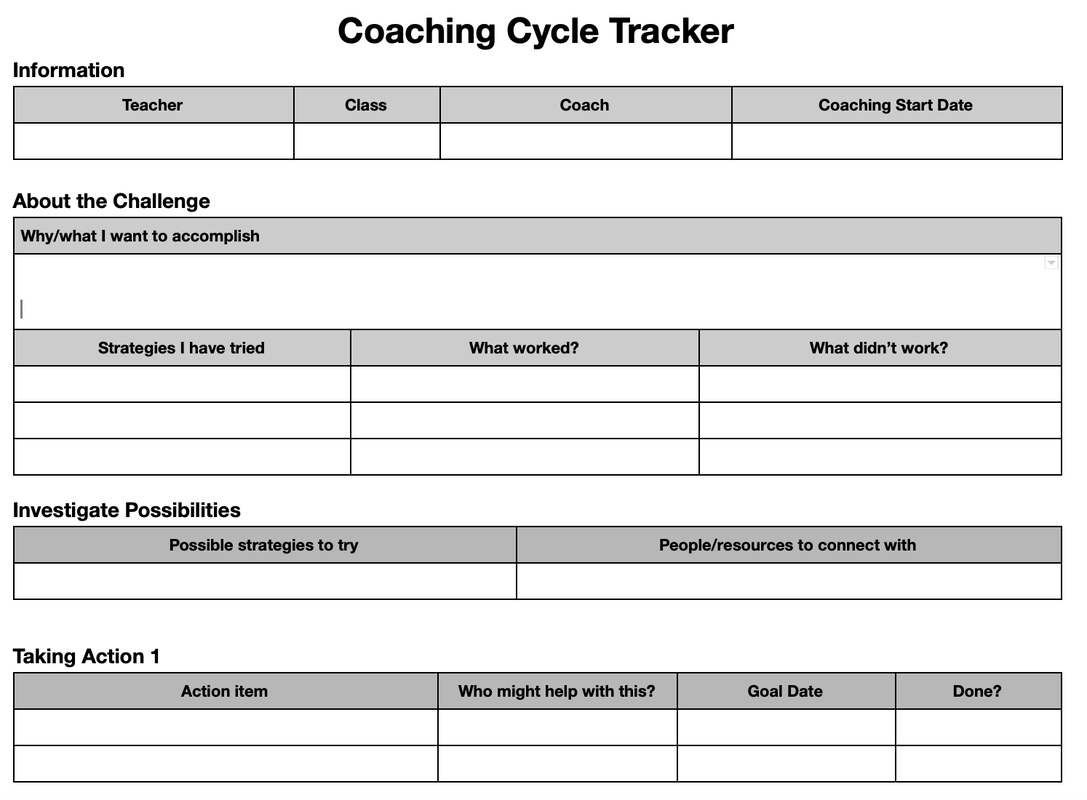
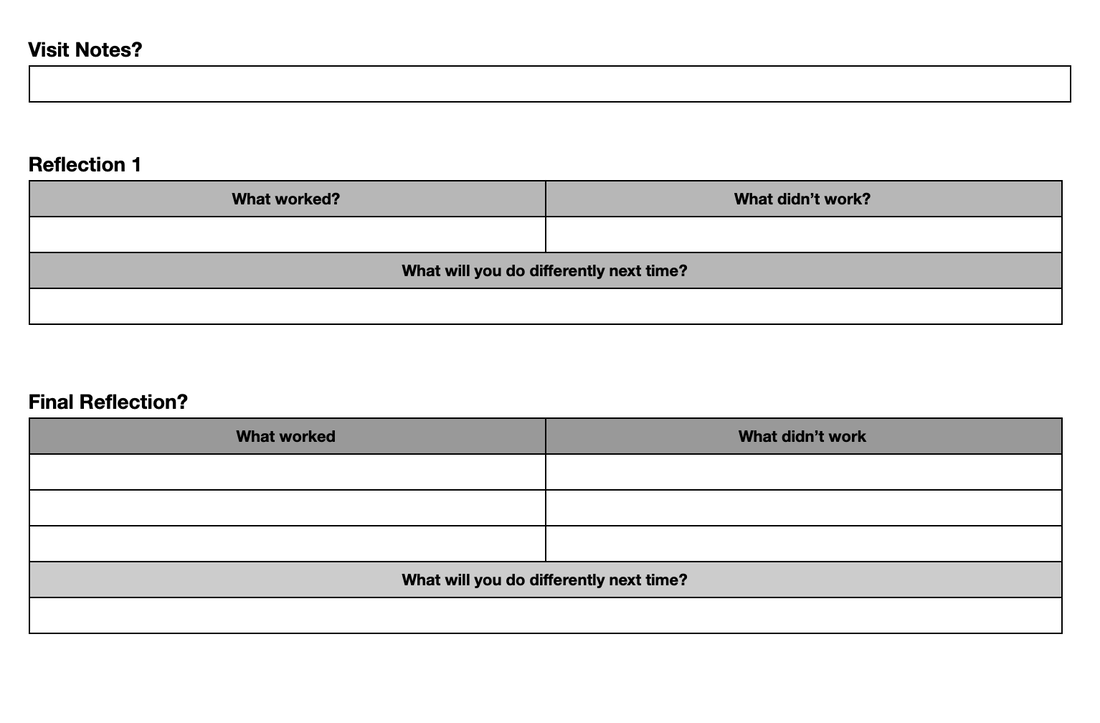
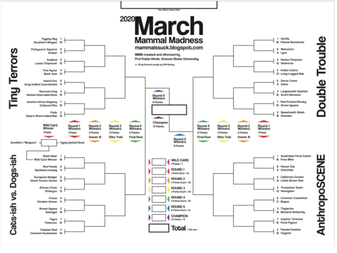


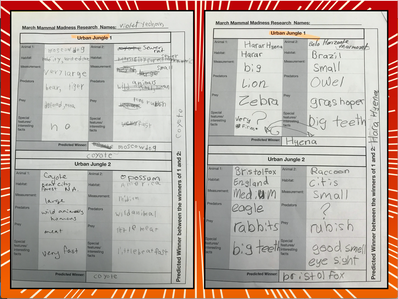
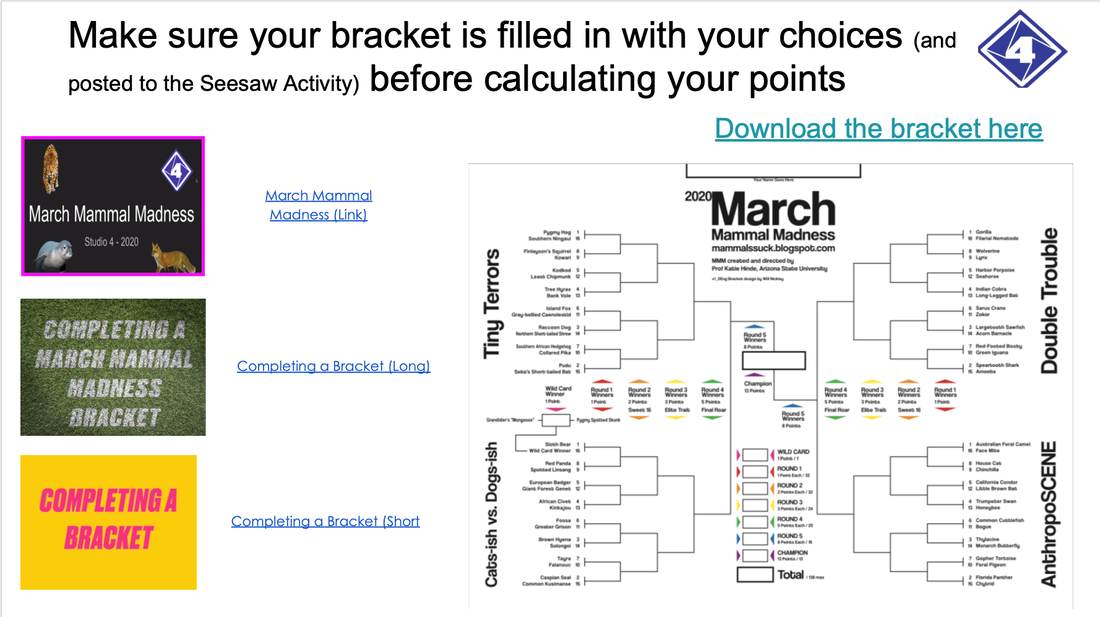
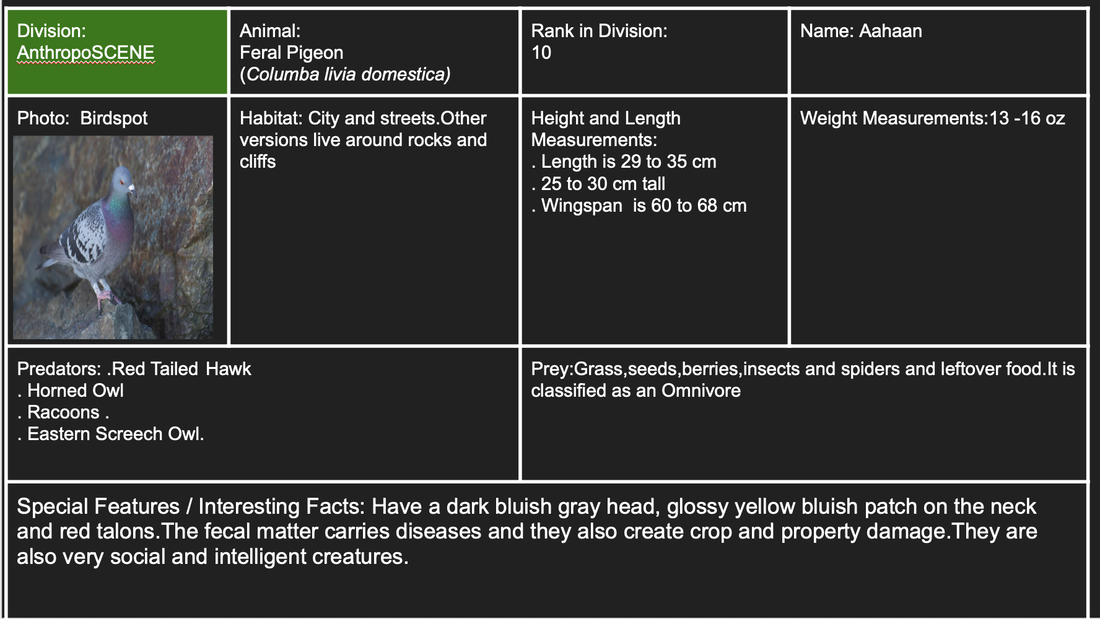
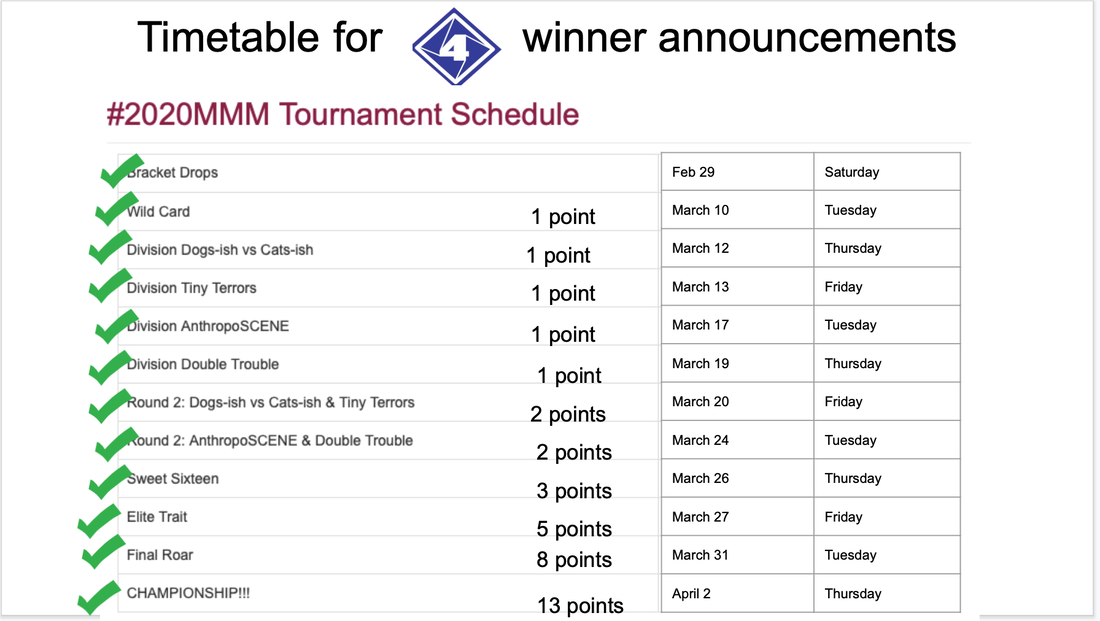
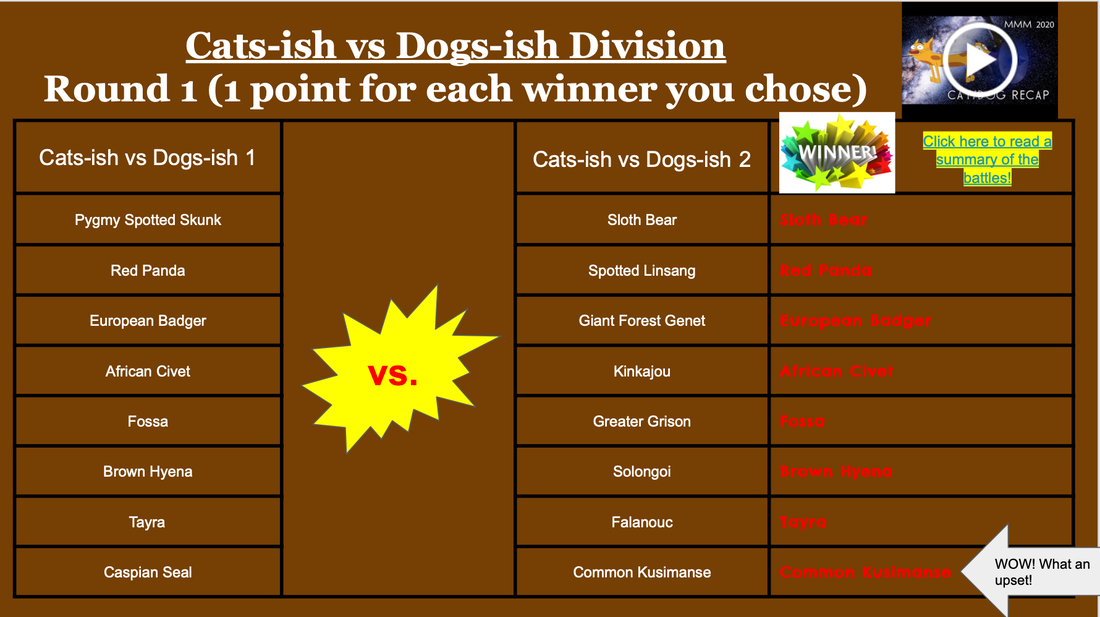
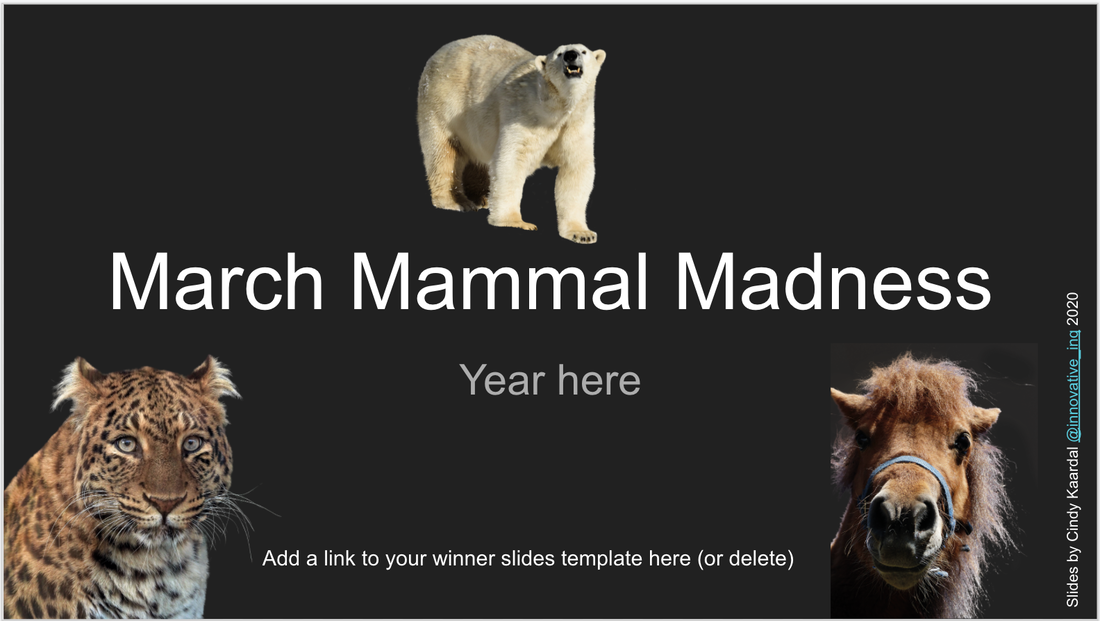
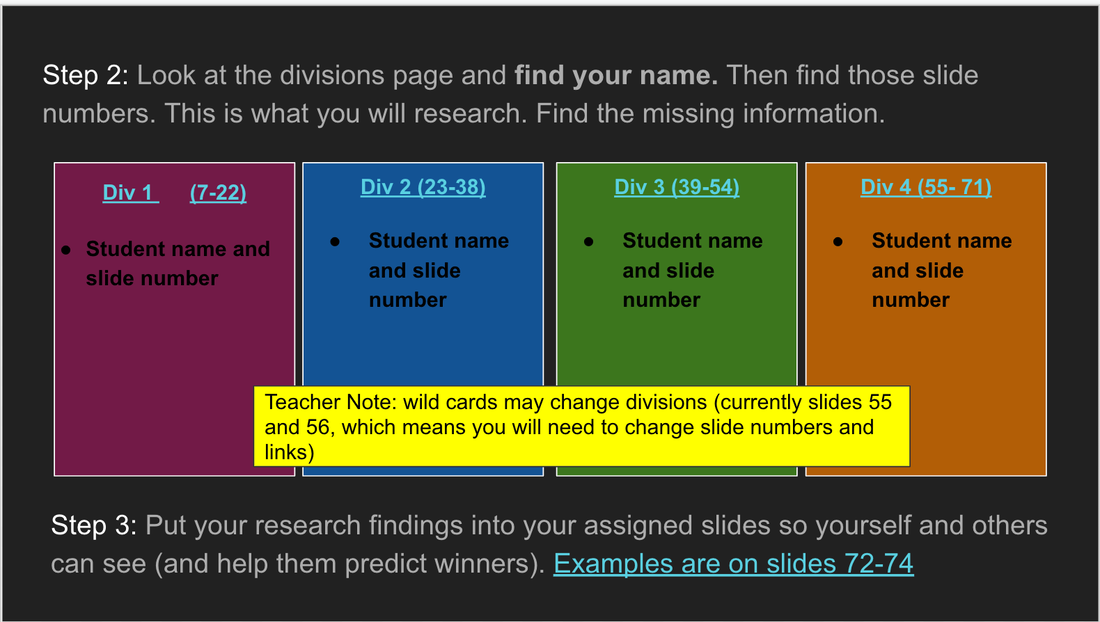
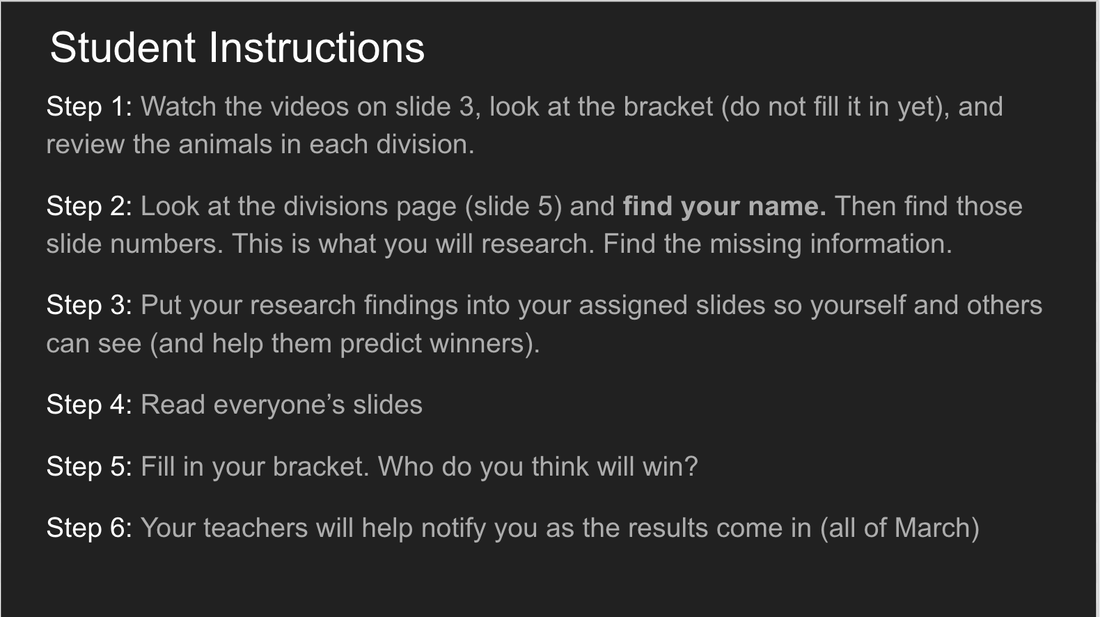
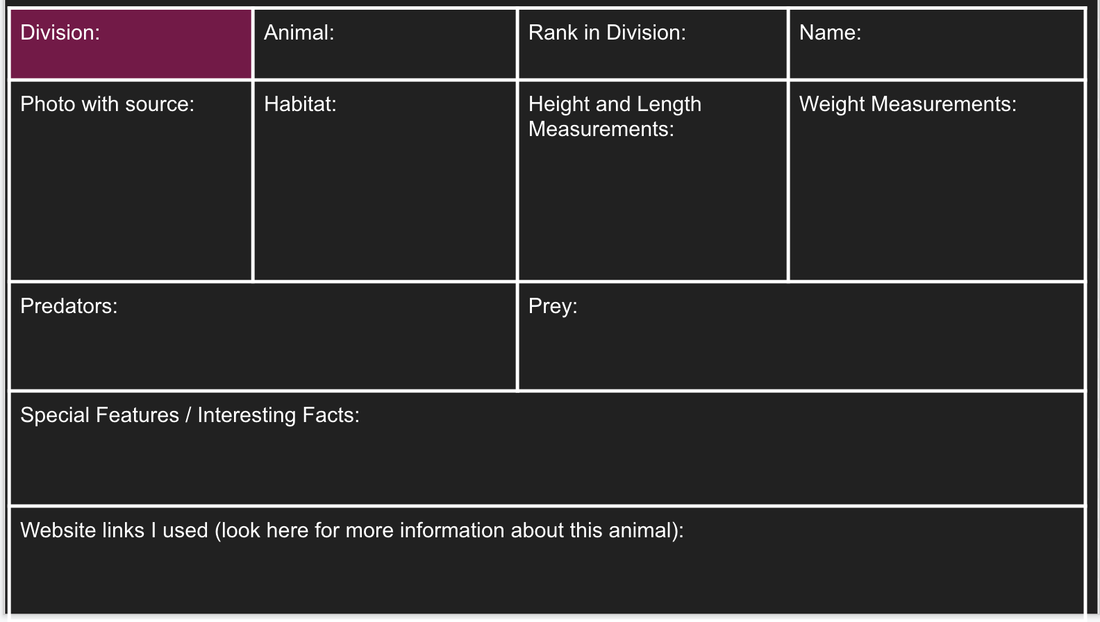
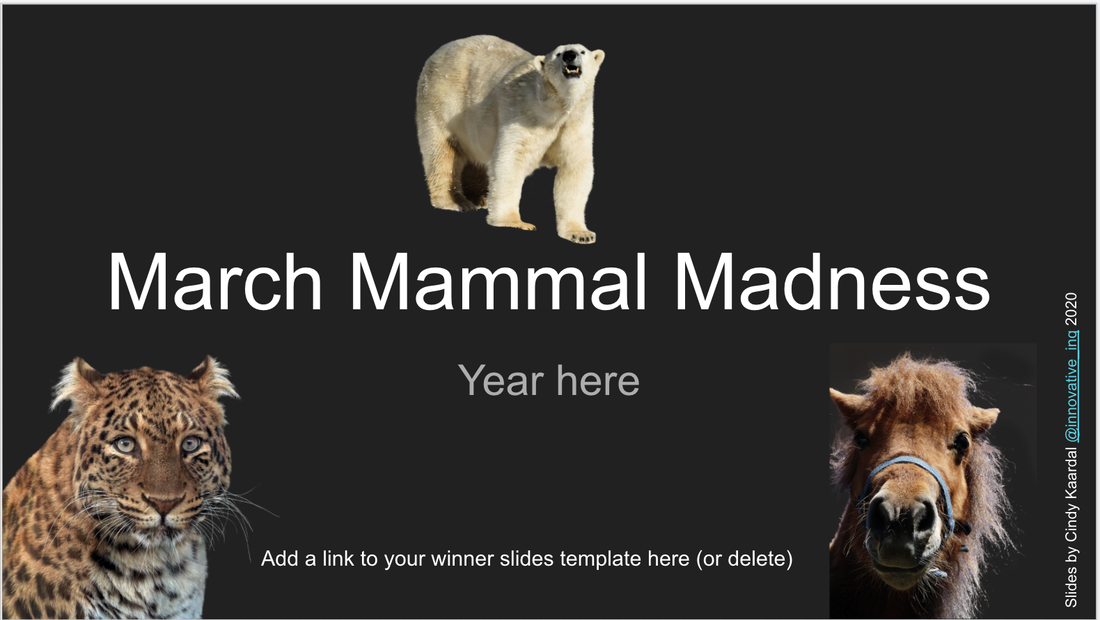
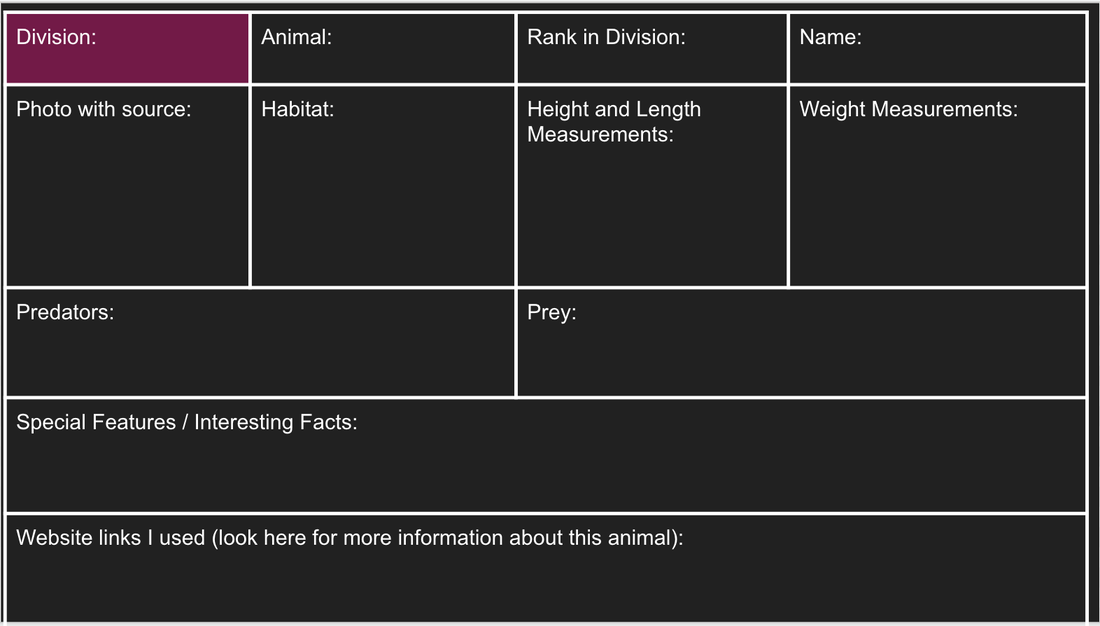
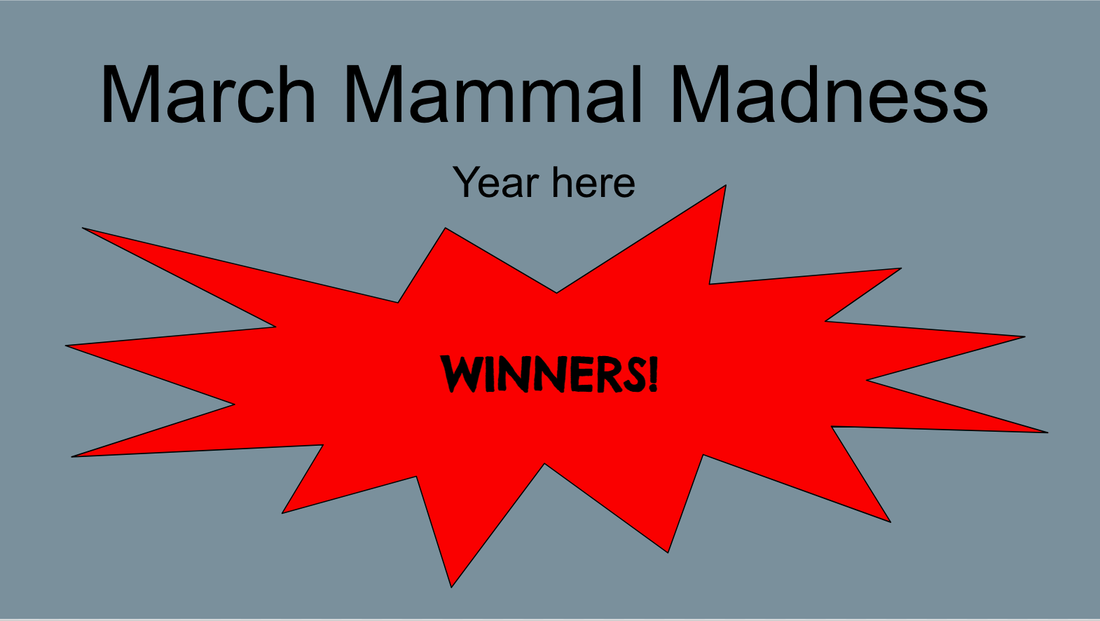
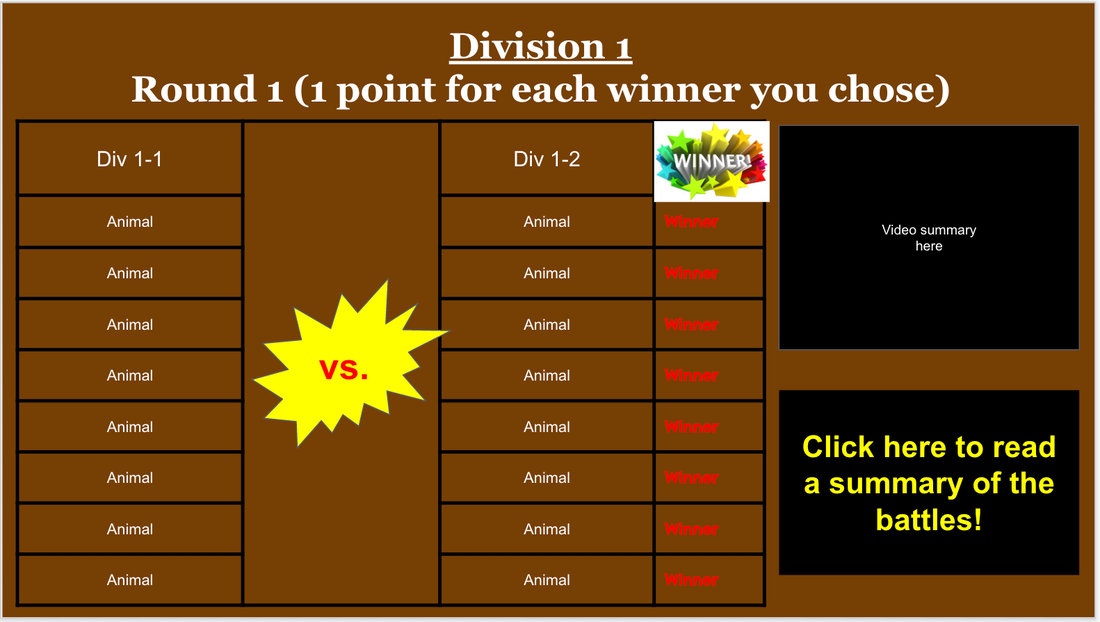




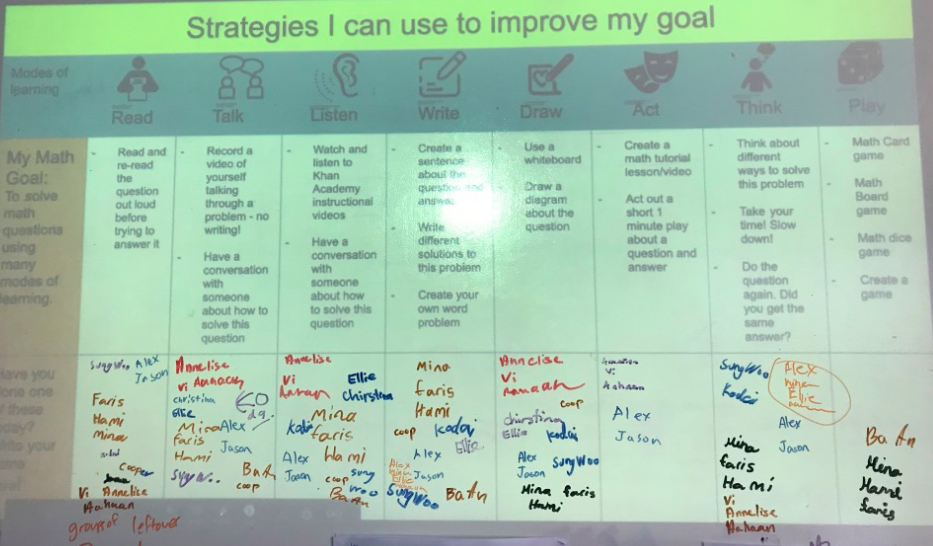
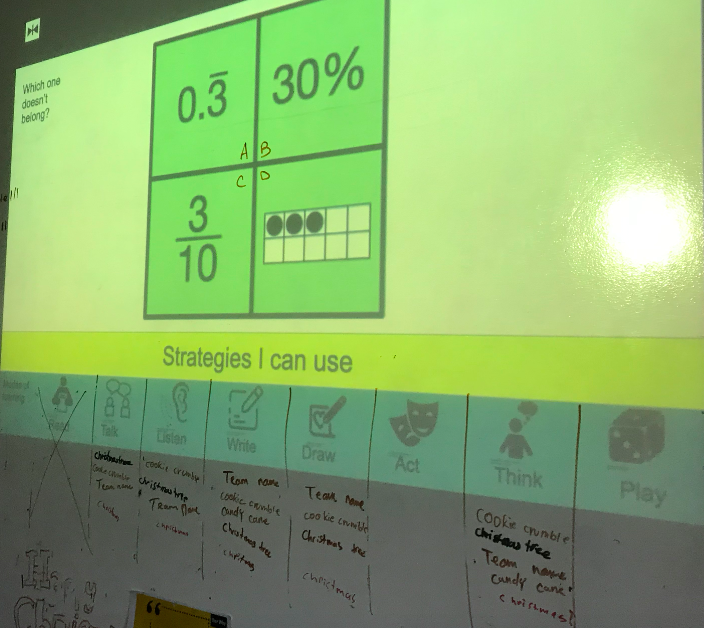
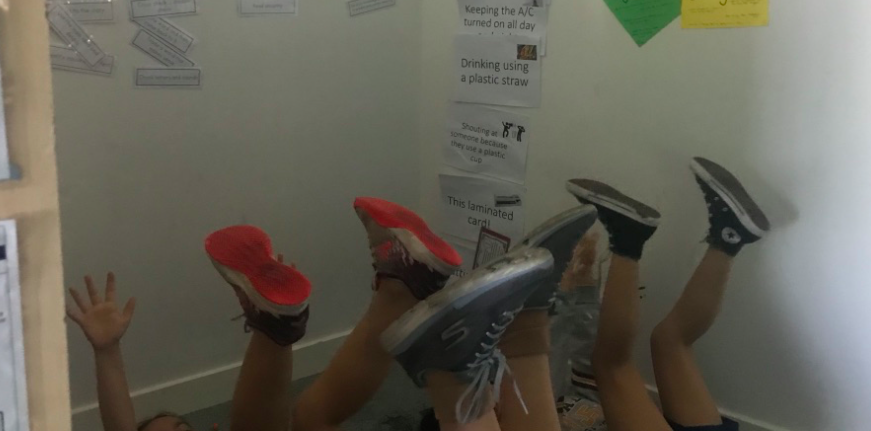
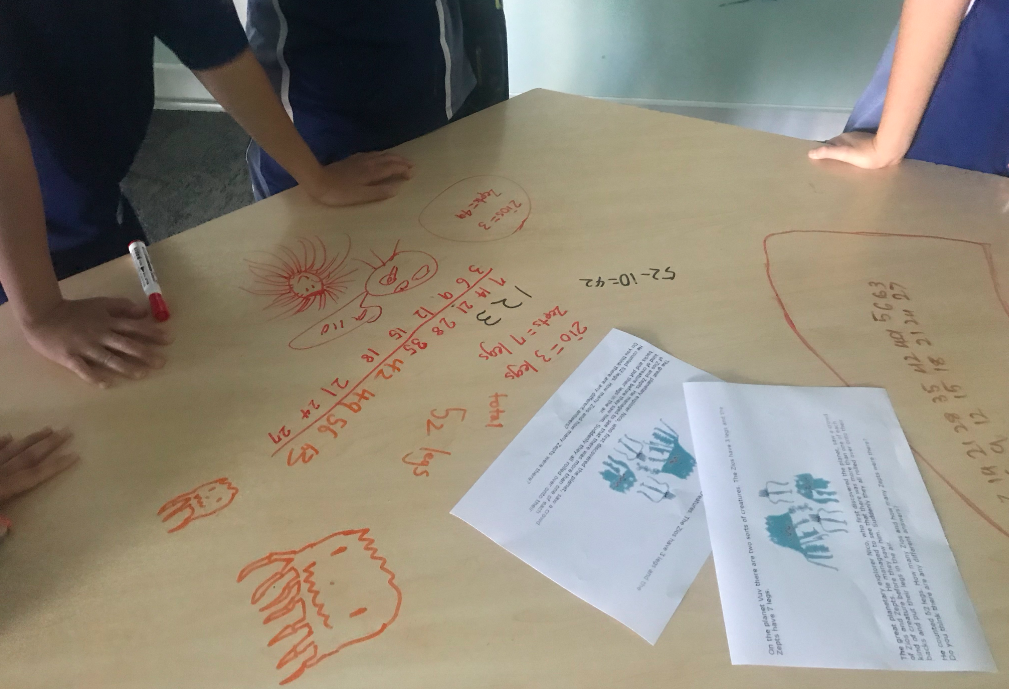
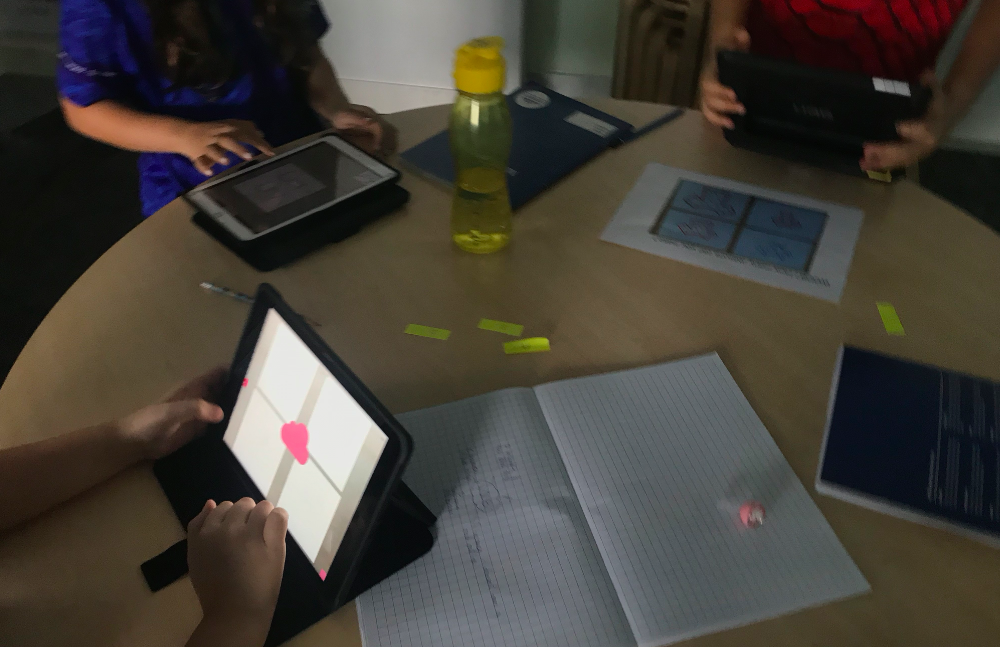
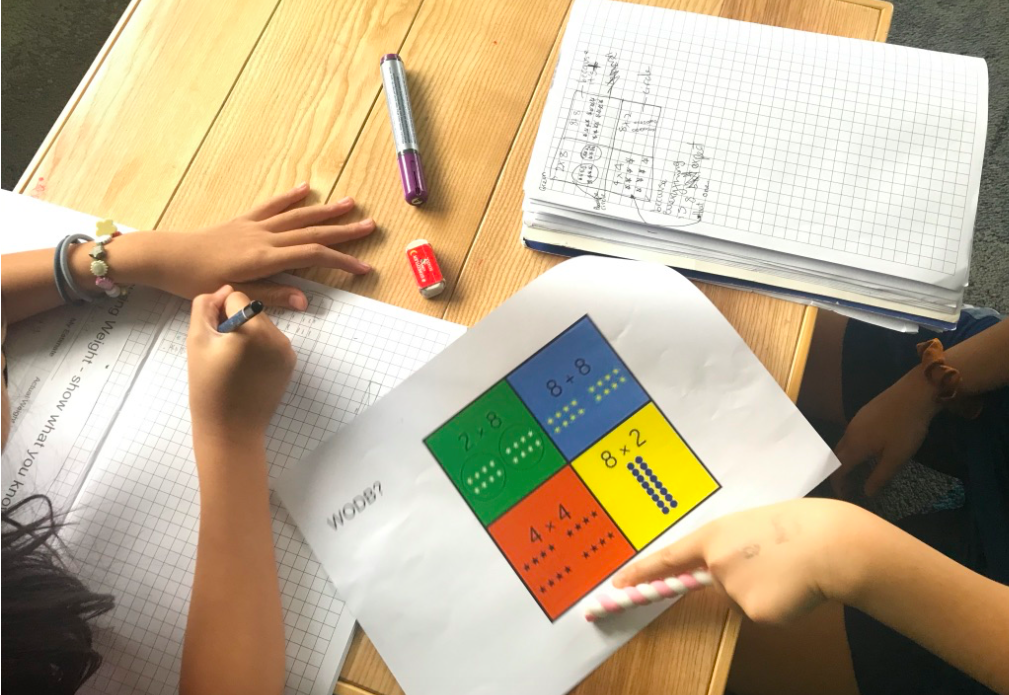
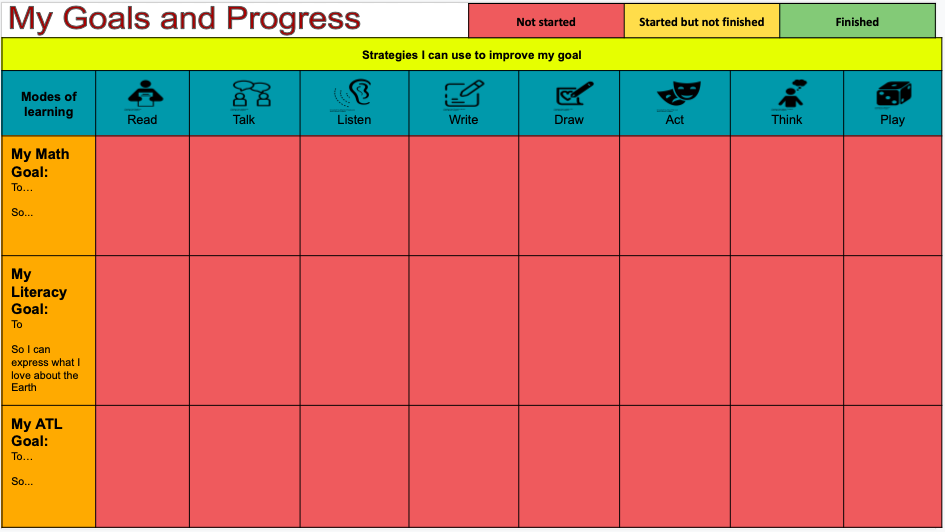
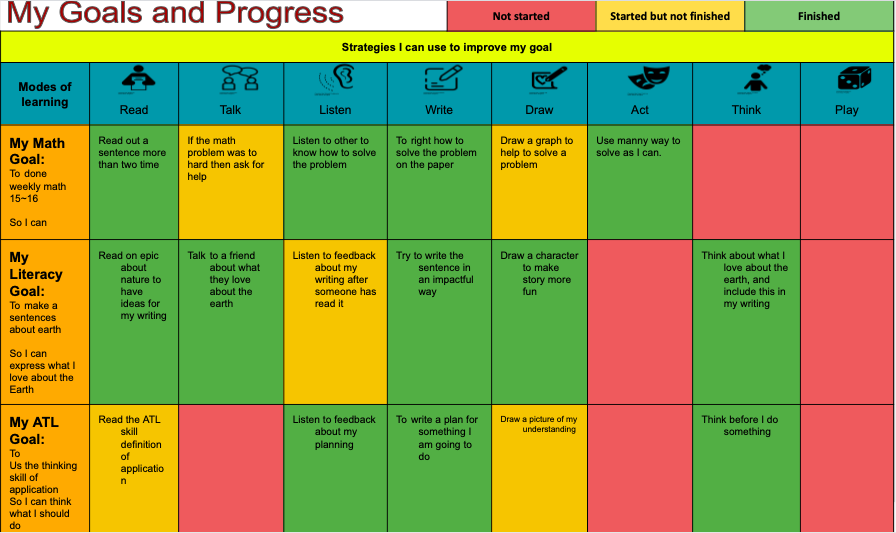
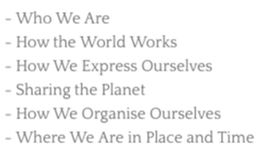

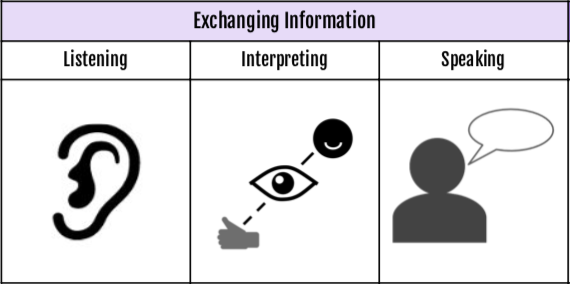
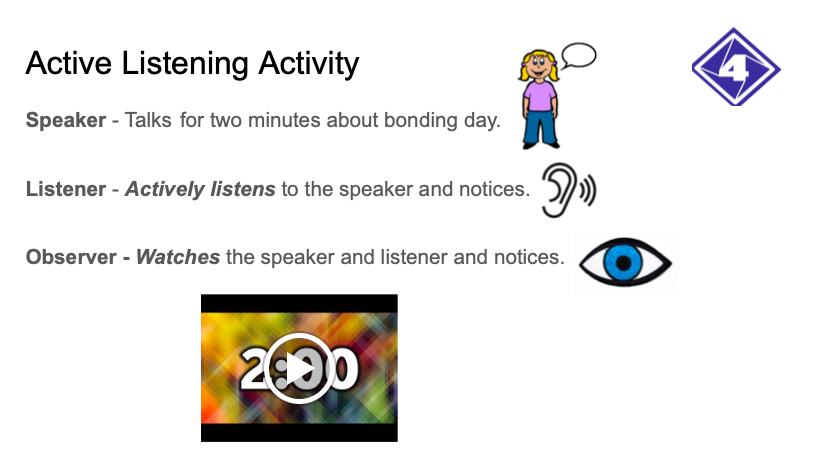
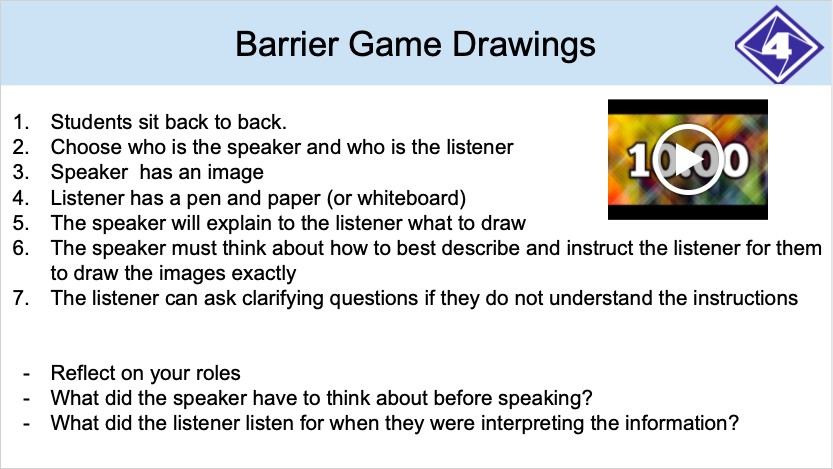
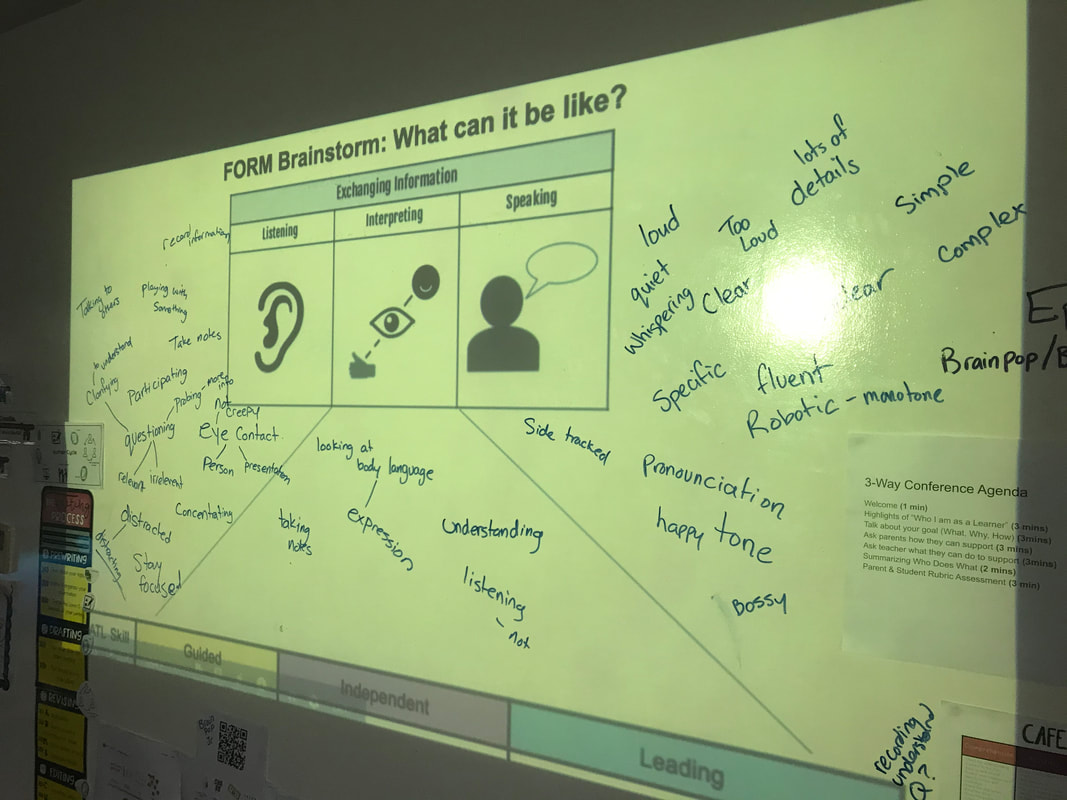
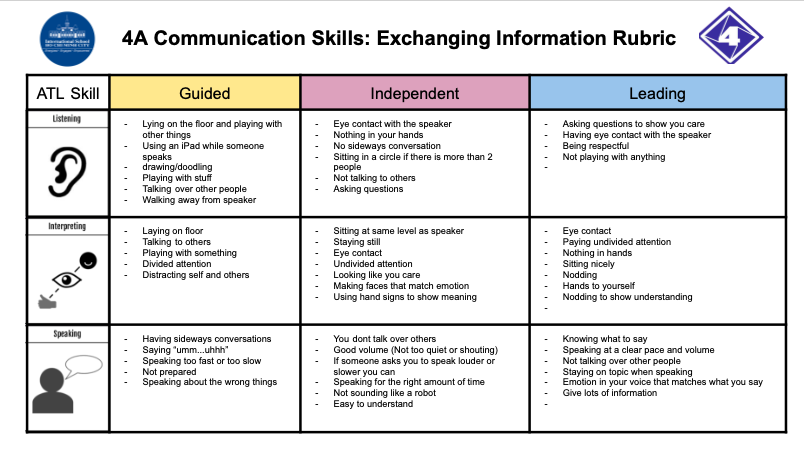
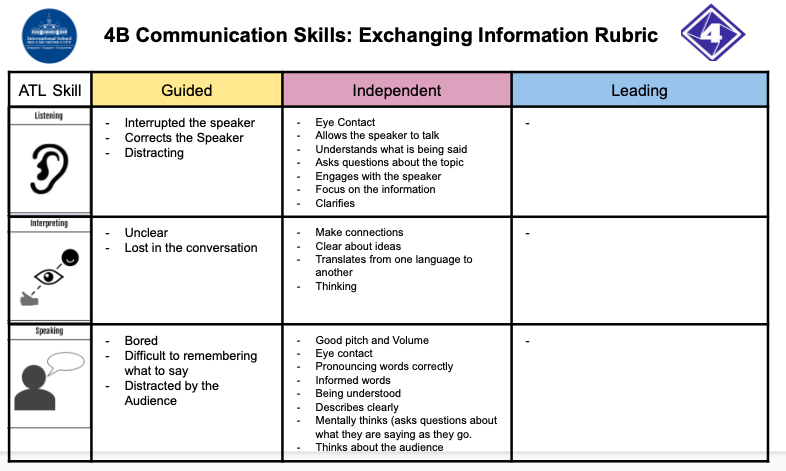
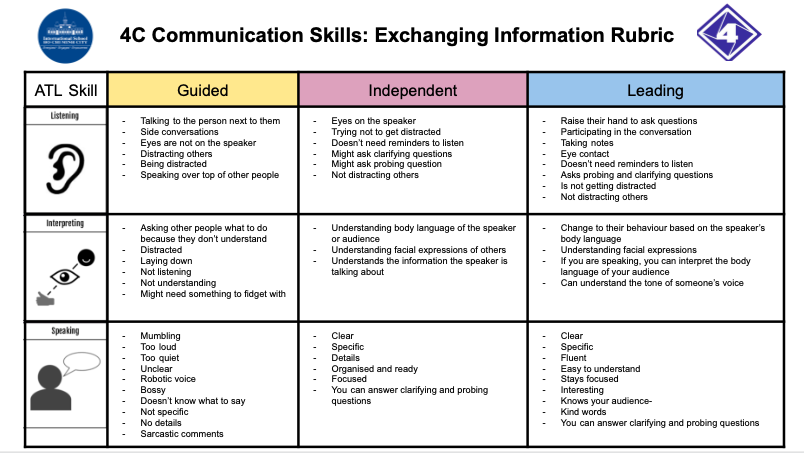
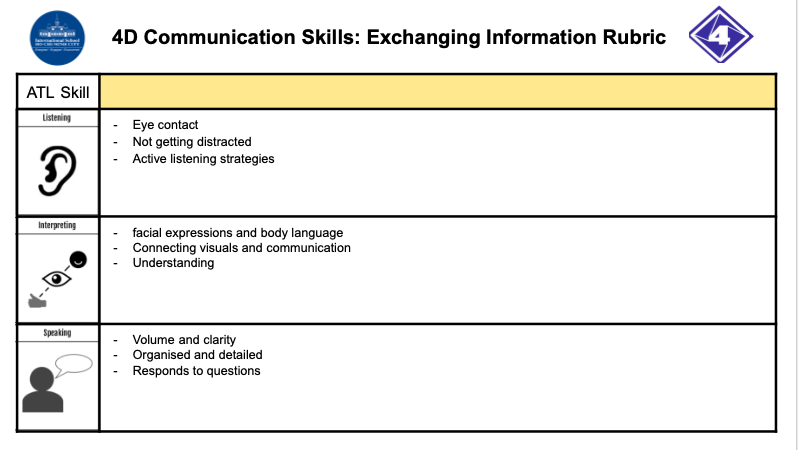
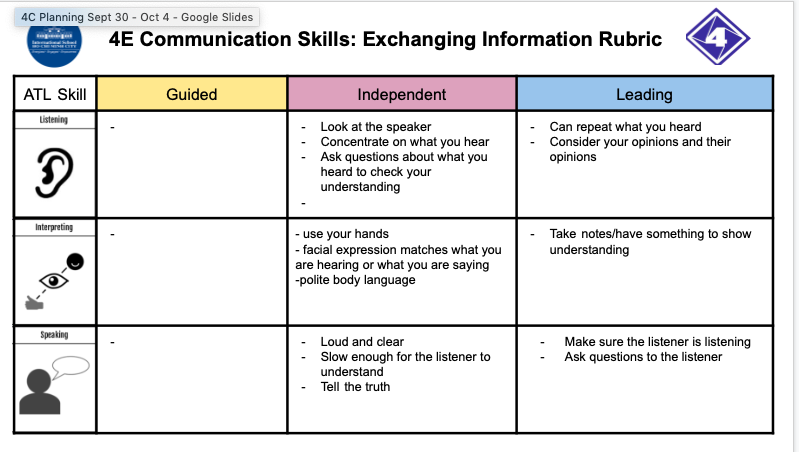
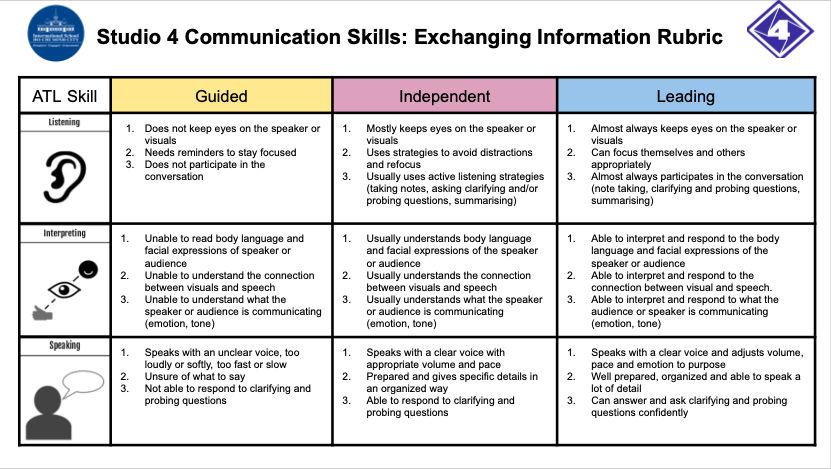
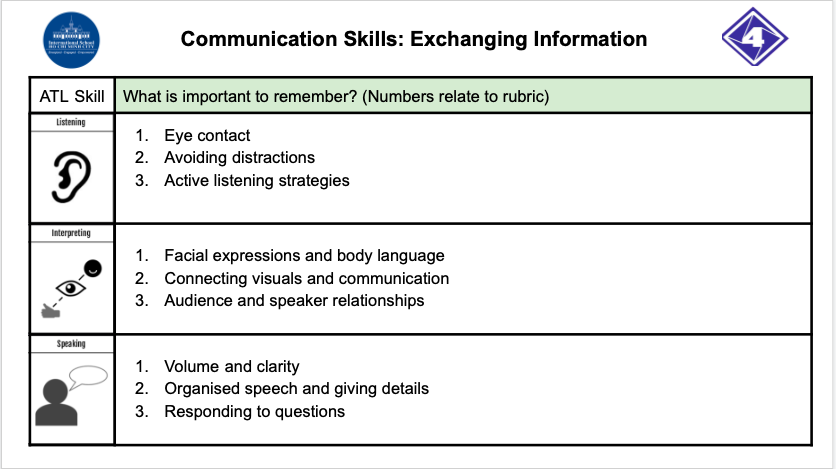
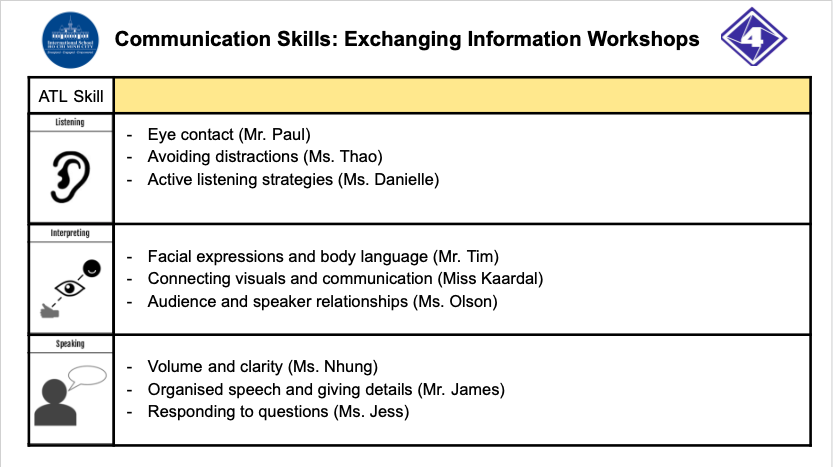
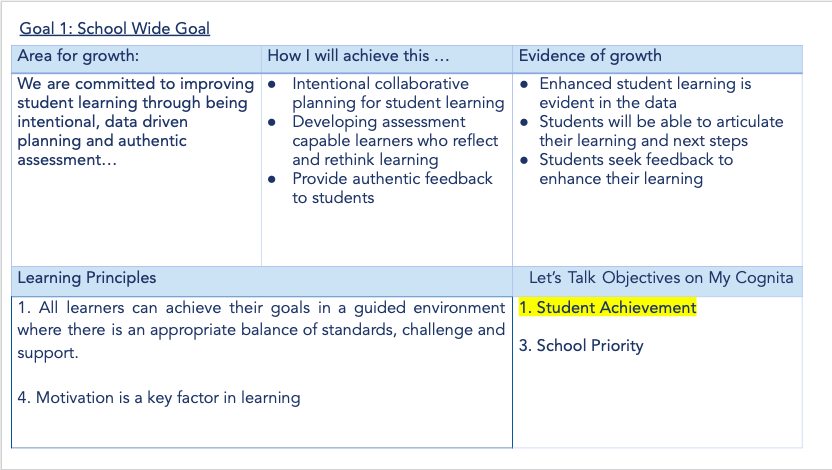
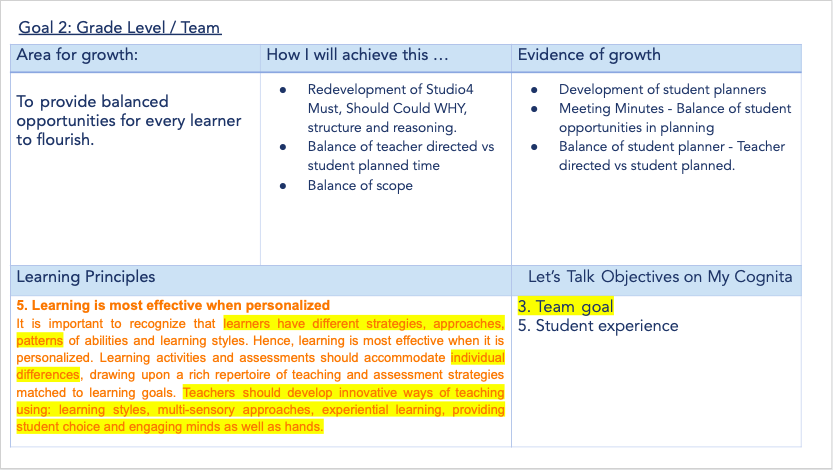
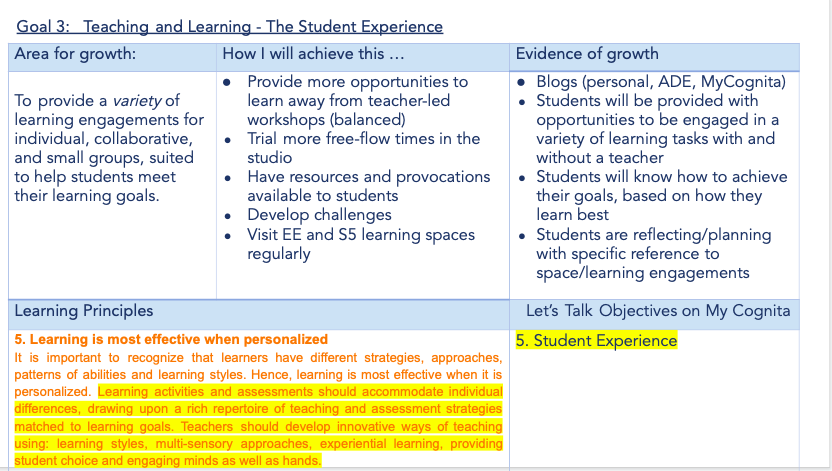
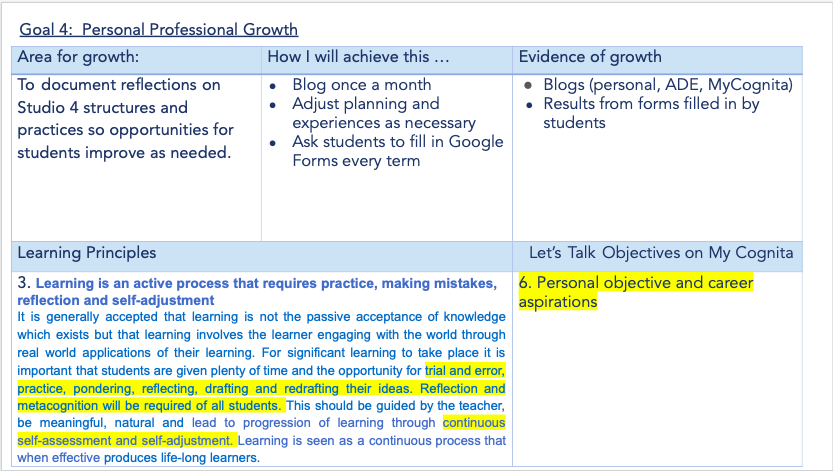
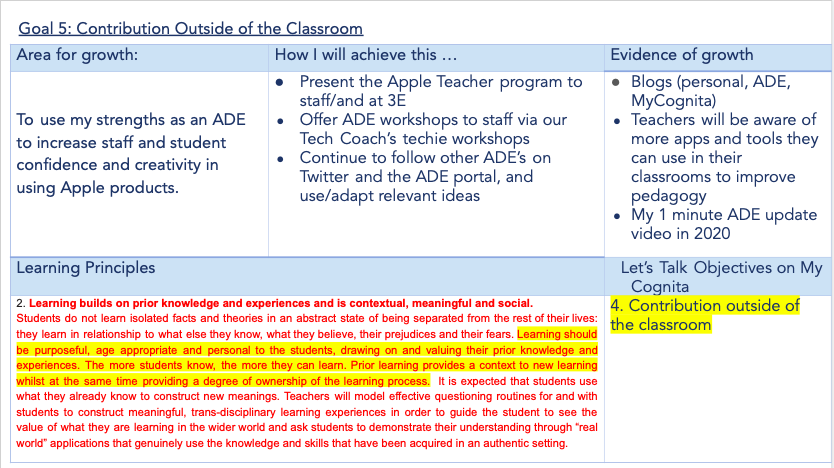
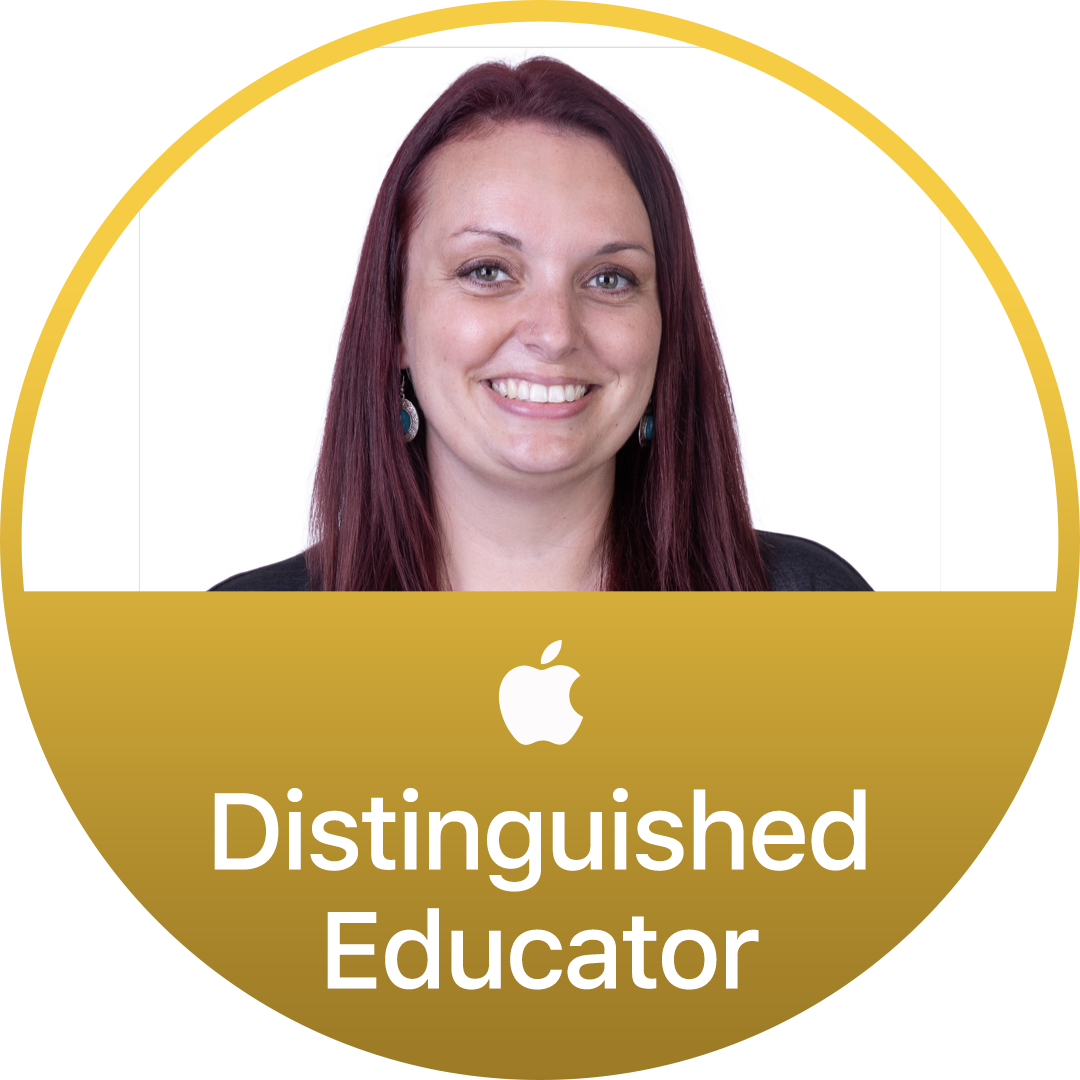
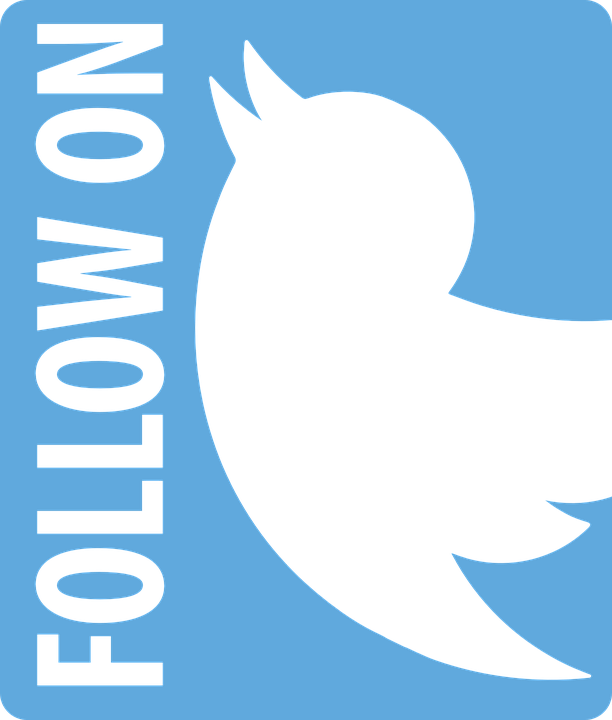

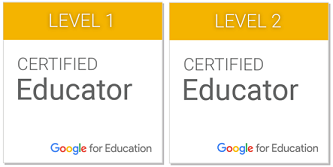
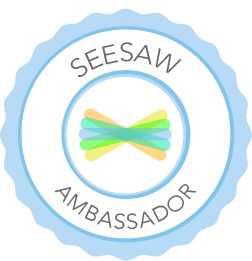
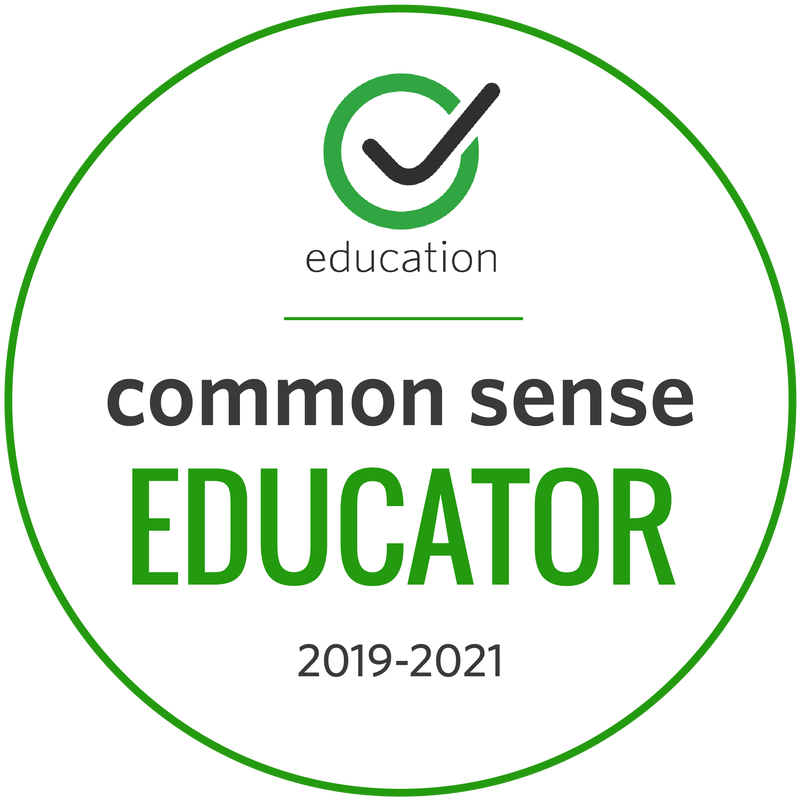
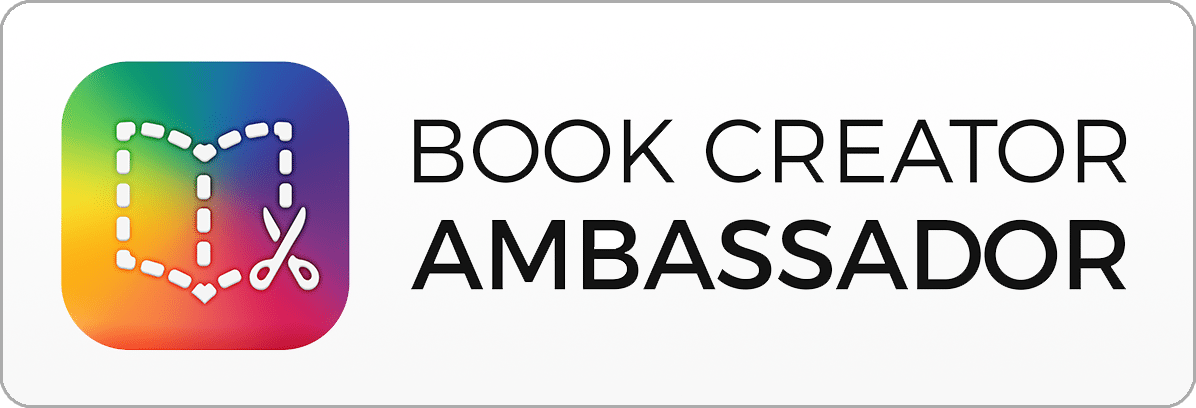
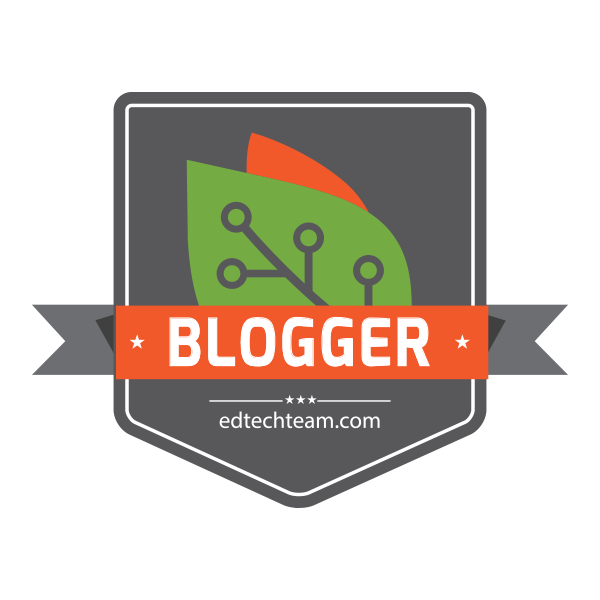
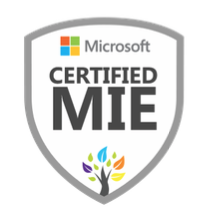
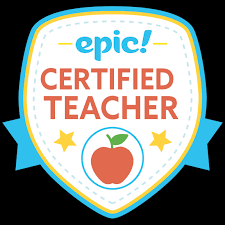

 RSS Feed
RSS Feed